
 |
|
|||||||
| Coffee Shop Talk of a non sexual Nature Visit Sam's Alfresco Heaven. Singapore's best Alfresco Coffee Experience! If you're up to your ears with all this Sex Talk and would like to take a break from it all to discuss other interesting aspects of life in Singapore, pop over and join in the fun. |
 |
|
|
Thread Tools |
|
#1
|
|||
|
|||
|
An honorable member of the Coffee Shop Has Just Posted the Following:
HOW PAP CREATED INEQUALITY IN SINGAPORE: WILL SINGAPORE COLLAPSE? .node-article .field-name-link-line-above-tags{float: right;}.node-article .field-name-ad-box-in-article {float: left;margin: 15px 15px 10px 0;}.node-article .field-tags{clear: both;} Post date: 16 Sep 2014 - 10:39am  The inequality in Singapore has reared its ugly head. In spite of what Minister for Culture, Community and Youth Lawrence Wong has said last year about income inequality stabilising and how the PAP government might claim this year that income inequality is declining, the fact of the matter is that Singapore still has the highest income inequality among the developed countries. 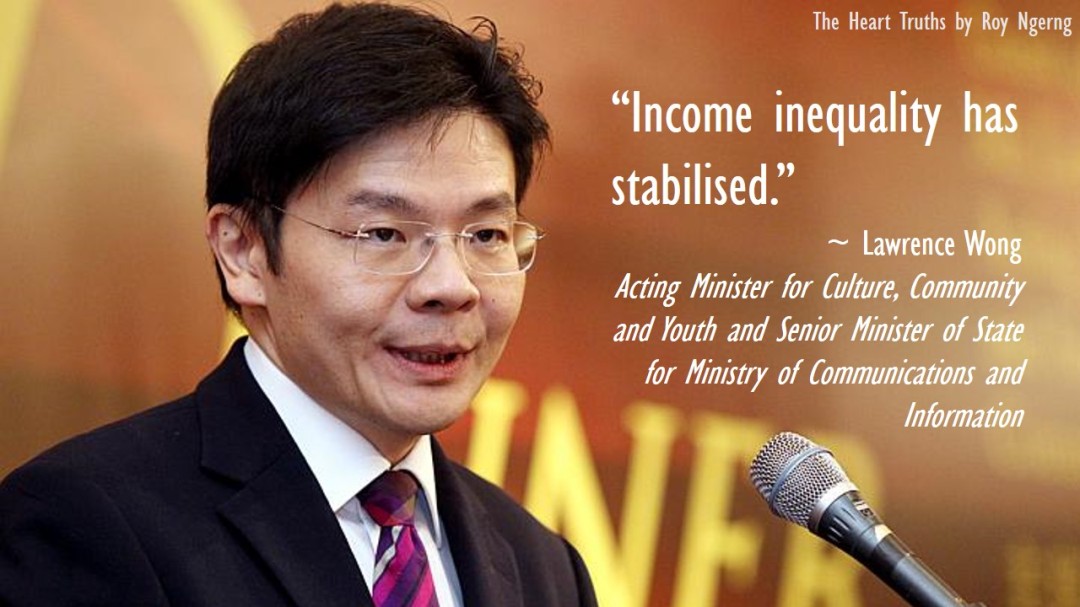 But worse still, earlier this year, I caught the PAP fudging the income inequality statistics. From 2008 to 2010 to 2013, in each of the government’s Household Income Trends reports, the PAP pushed down the income inequality statistics across the reported years, which creating the illusion that Singapore’s income inequality is lower than what it actually is. 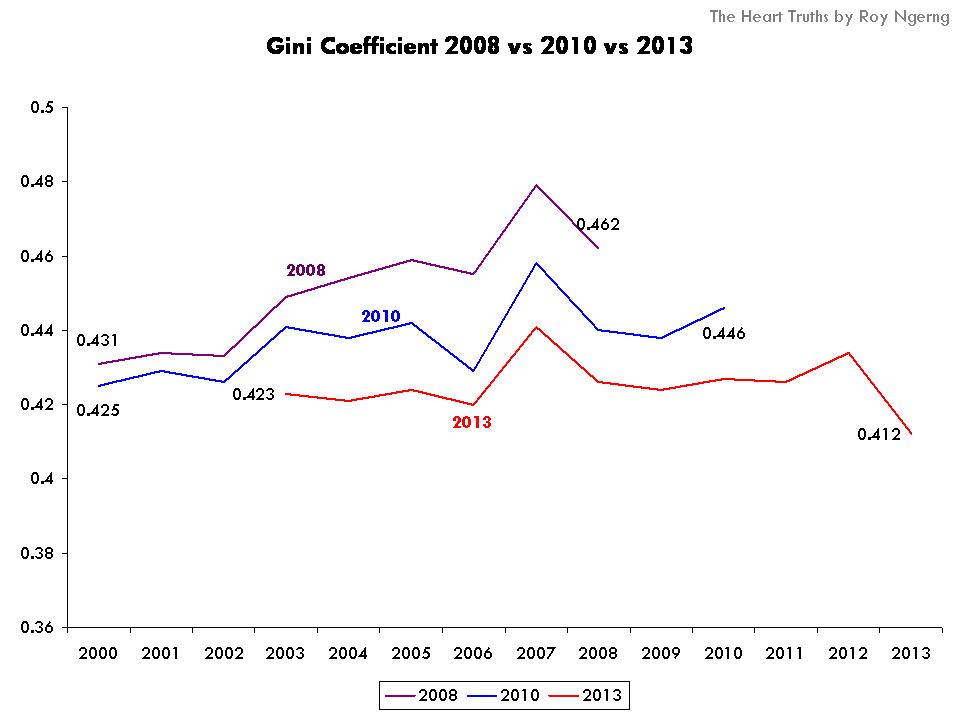 Clearly, Singapore’s income inequality is not only the highest among the developed countries, it is also one of the highest in the world. 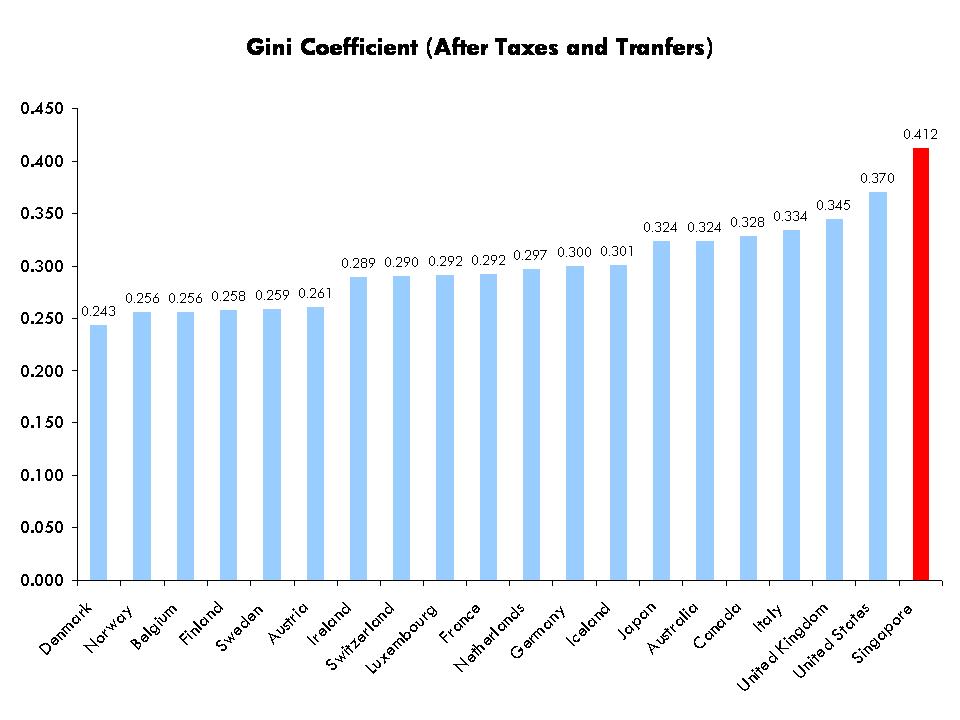 What is worse is that the income inequality situation is driven by how the richest in Singapore pay themselves the highest salaries among the developed countries and one of the highest in the world. It is also exacerbated by how the PAP also pegs their own salaries to the richest in Singapore, as you will see later on. 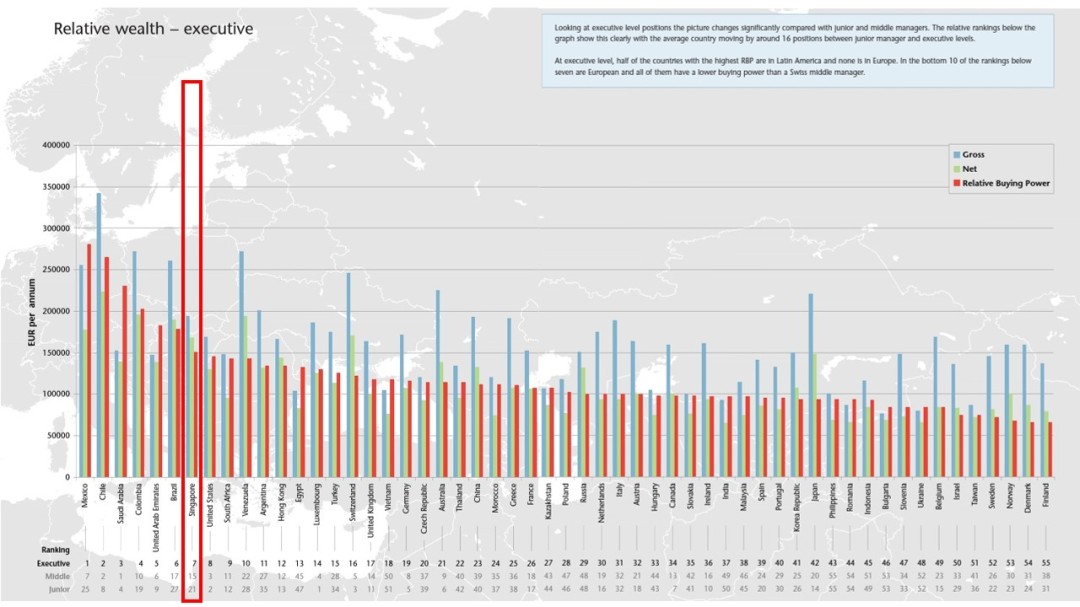 Not only that, over the years, the PAP kept reducing the personal income tax that the rich needs to pay, so much so that the richest in Singapore pays one of the lowest taxes in the world. 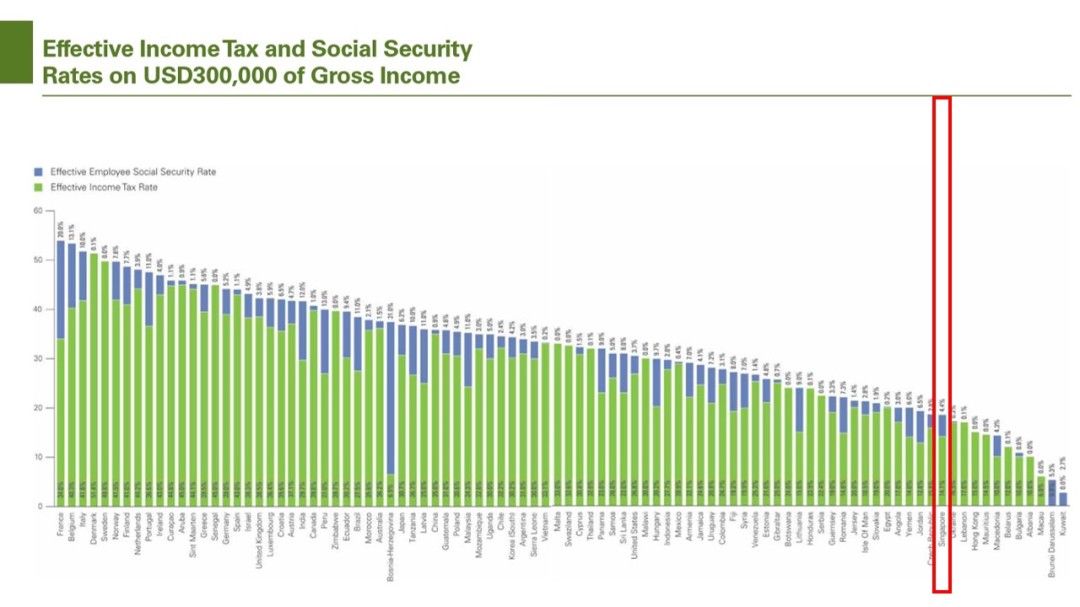 And whenever the income inequality increases, the share of income that goes to the richest also increases in the subsequent year. 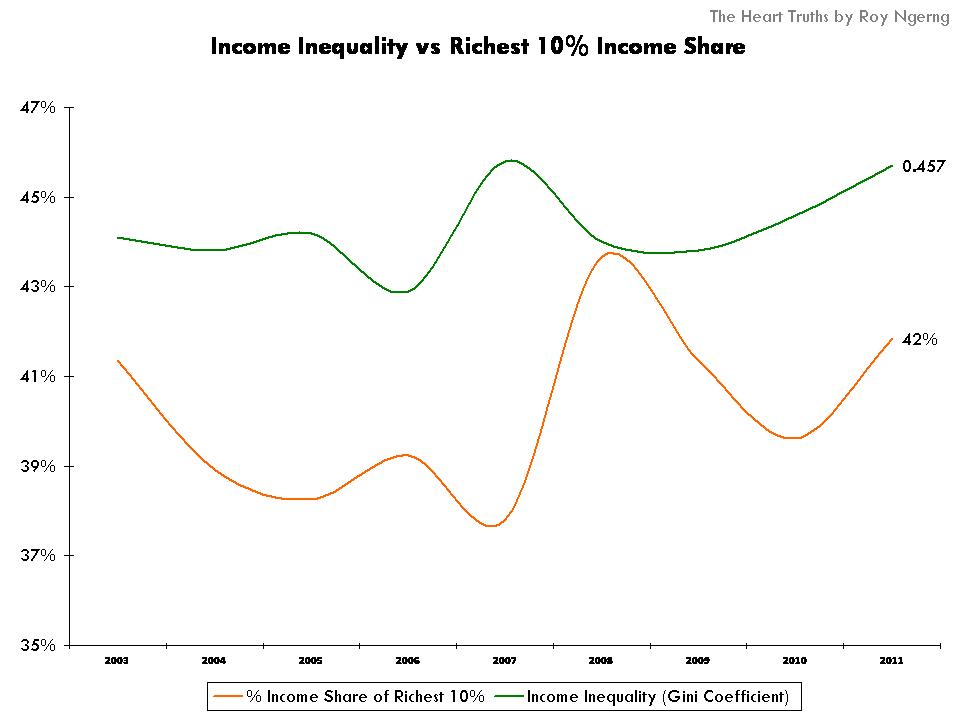 So much so that the policies that the PAP has created has allowed the rich to get ahead so much, that the share of income in Singapore that goes to the richest 10% has risen from 30% in 1995 to 42% in 2011. 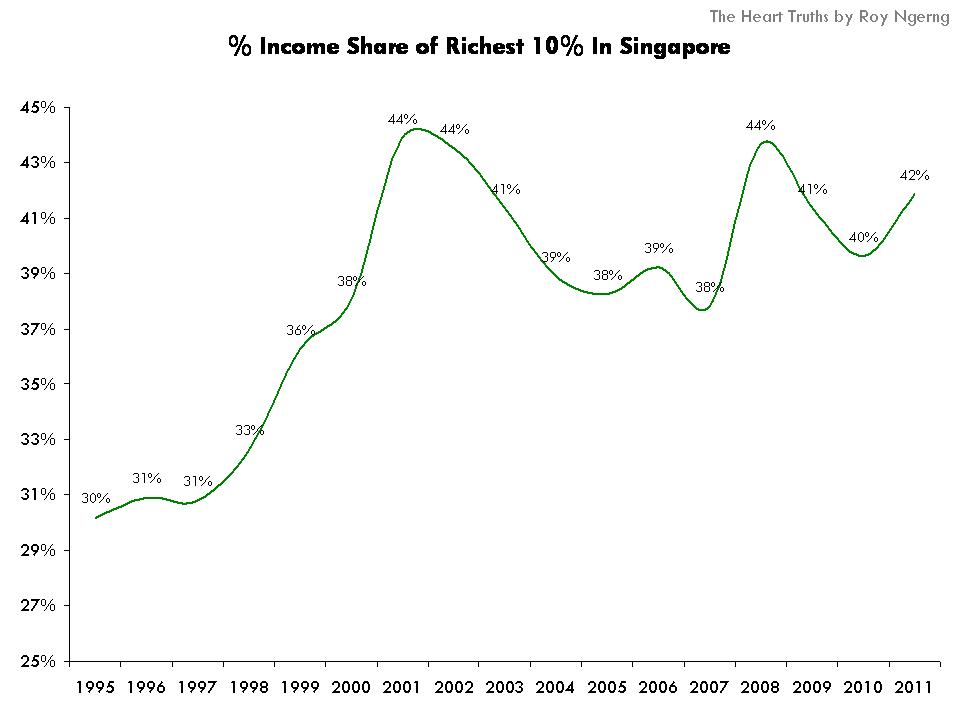 But how did the abhorrent income inequality situation come about? If you look at the chart below, you will see that prior to Singapore’s self-governance in 1959, income inequality in Singapore was already very high – the share of income that went to the rich was extravagant. Indeed, “During the time as a colony, shares rose to a peak in 1951 and then declined over the 1950s.“ 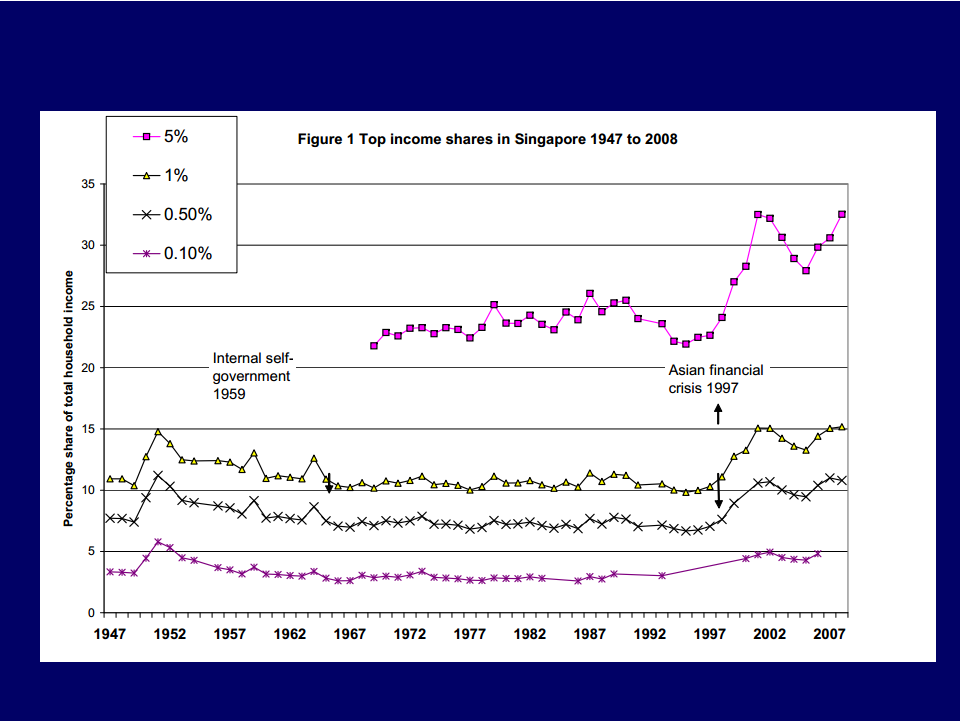 After 1959, the share of income that went to the rich and the inequality in Singapore started declining in the 1950s and 1960s. After Singapore gained independence in 1965, income inequality stabilised for the next 30 years or so. 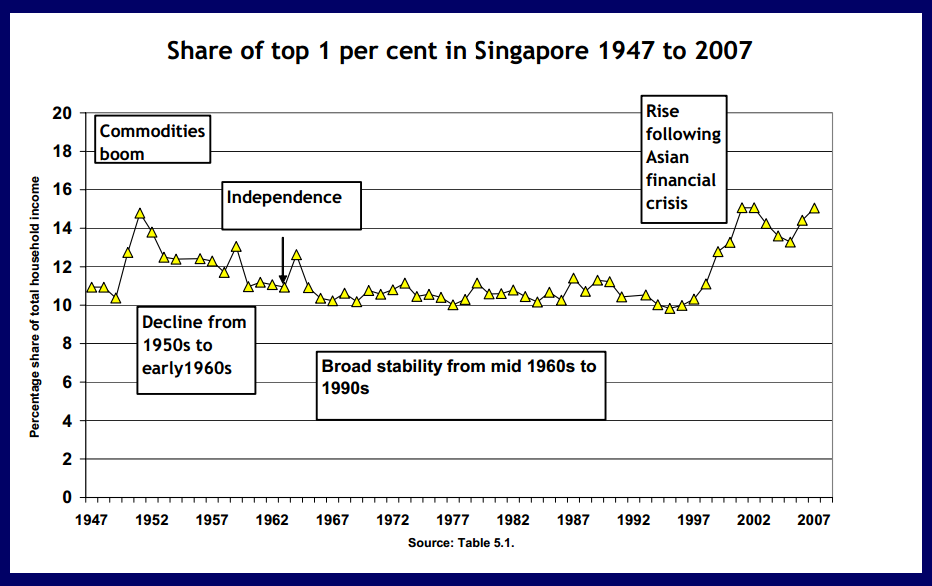 Income inequality in Singapore fell to its lowest in 1980, before starting to rise very quickly after that. In 1983, income inequality reached its peak before declining just a little and then rising quickly to its next peak in 1989. So, you can see, by 1983, after a period of about 20 years from Singapore’s independence, income inequality started to rear its ugly head. In fact, Roine and Waldenström showed that in 1984, the share of income that went to the richest in Singapore was starting to trend upwards. 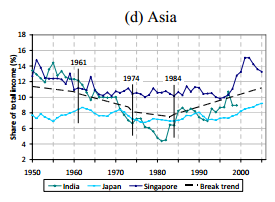 So, what exactly happened in 1984? Remember this year. 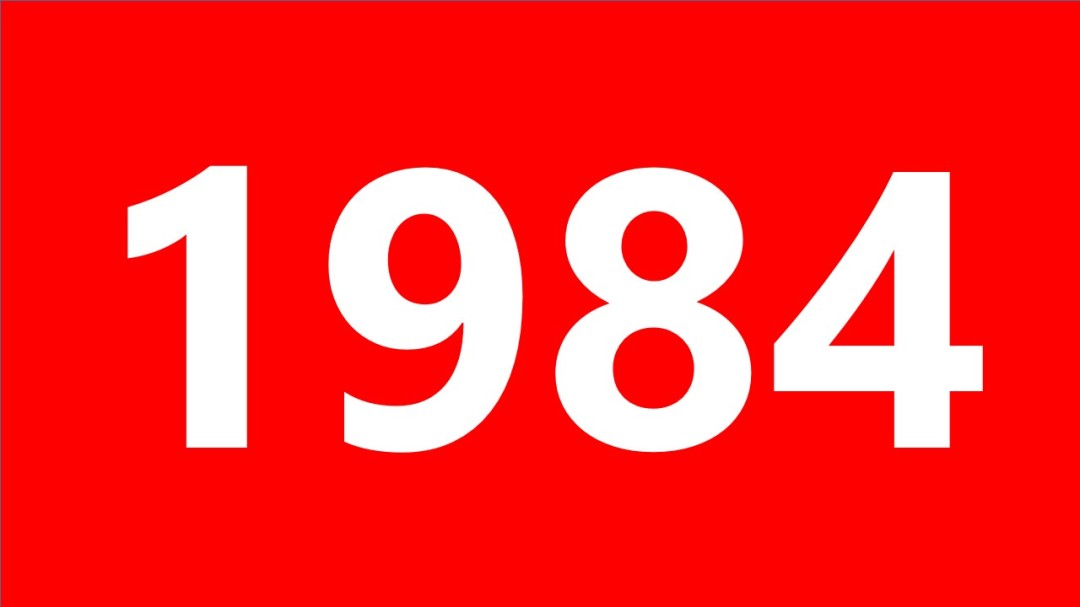 1984 was the start, but that wasn’t the end of it. In fact, it was only beginning. In 1995, the income share that went to the rich started to escalate dramatically upwards. What happened prior to 1995 that caused this? Specifically, what happened in 1994 to result in this dramatic spike in incomes that was going to the rich? Again, remember 1994. 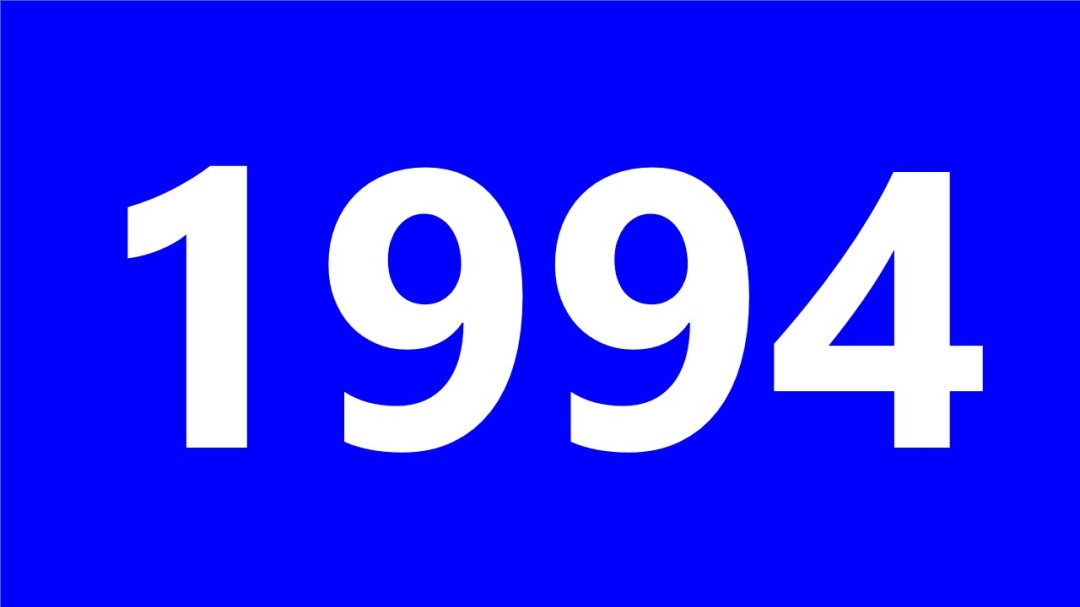 The next turning point was in 1997 when after the Asian Financial Crisis, income inequality also started to shoot dramatically upwards. 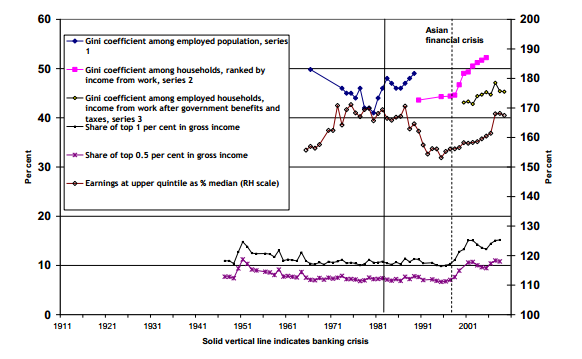 Since then, income inequality in Singapore has only worsened and remain high – the highest among the developed countries and one of the highest in the world, and even higher than when Singapore gained independence. 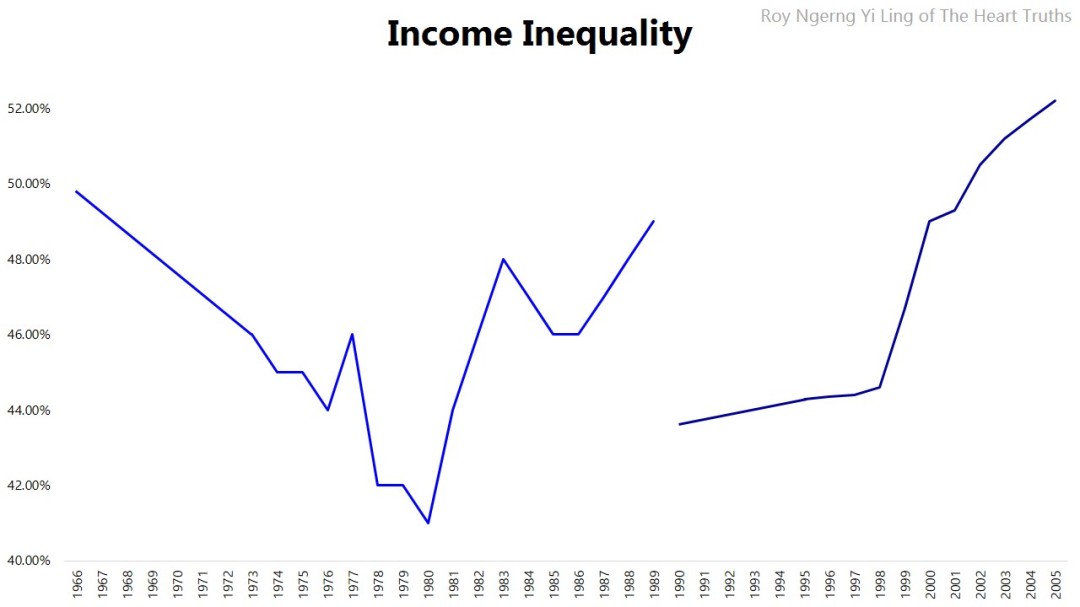 Similarly, the share of income that went to the richest has also become the higher than when Singapore gained independence. 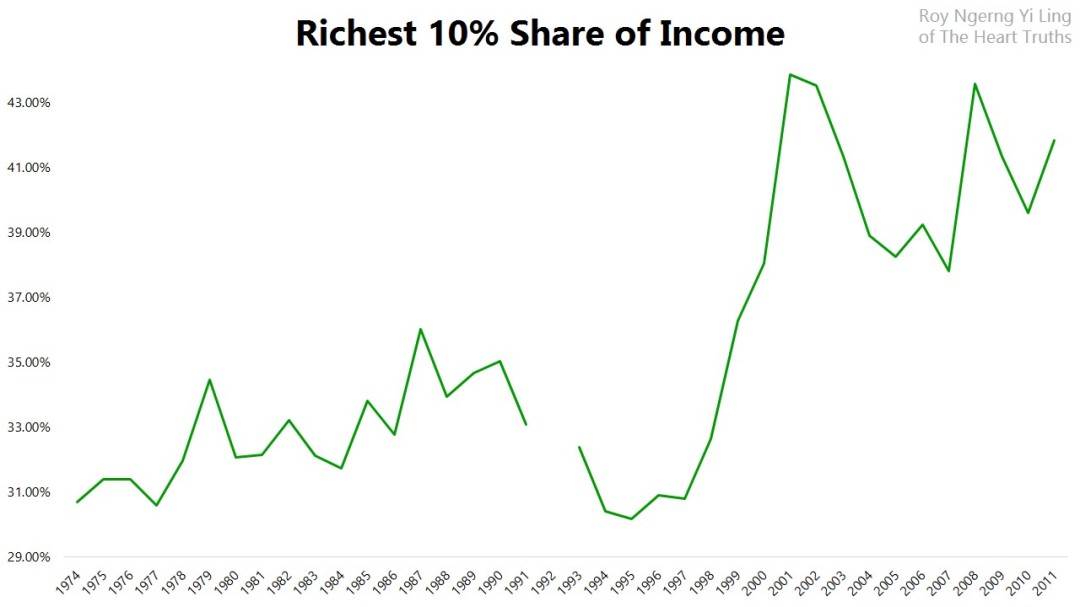 But what exactly happened? We know that “In the late 1960s when Singapore began as a nation, the income inequality was already quite high (with Gini coefficient of 0.498)“, which meant that the rich were already paying themselves (too) much prior to independence and they were able to hoard a large part of the wealth in Singapore. However, “In November 1954 the People’s Action Party (PAP), a coalition of moderate democratic socialists and left-wing communists, was formed in Singapore. Initially the party manifesto had the objective of alleviating ‘unjust inequalities of wealth and opportunity’.“ Thanks to this, (and perhaps thanks to the left-wingers who were but later arrested by the PAP and imprisoned without trial, some for more than 20 years), this resulted in reducing income inequalities. However, “in 1961 the left-wingers left the PAP (and were subsequently arrested by the PAP for no legit reason).” The new party manifesto (issued in 1982) reflects a shift from ideology to practicality. The objective of abolishing unequal distribution of wealth and opportunity was revised to ‘the creation of a dynamic, disciplined and self-reliant society in which rewards are “in accord with each Singaporean’s performance and contribution to the society” and the creation of equal opportunities to all Singaporeans’.“ Thus the PAP decided in 1982 to veer away from a decided policy to reduce income inequality in Singapore but favour a meritocracy that would favour “performance” and an emphasis of “self-reliance”. The first signs of trouble started brewing soon after.  In 1984, Lee Kuan Yew “decided to target Ministers’ salaries at 80% of their private sector counterparts“. In 1985, Chiam See Tong and J. B. Jeyaretnam questioned Lee Kuan Yew’s raising of salaries for the PAP politicians. Mr Chiam had asked, “I think it is a pity and it is a very sad thing that now we have to get people in … with attractive rewards.” Mr Jeyaretnam had also asked: Mr Speaker, Sir, the Prime Minister keeps talking about, “Let’s have a sense of proportion.” This is what I am trying to urge upon the Prime Minister, believe me, to have a sense of proportion. And I think you will get that if you compare the responsibilities and the duties of your office with the responsibilities and duties of office in other countries, and then begin to see what they are paid and what the Ministers are paid here. In my Table that I have presented, the Prime Minister gets nearly four times what the Prime Minister in the United Kingdom gets, and what the Prime Minister in New Zealand gets. And three times more than what the Prime Minister in Malaysia gets. Is the Prime Minister of the view that his salary should be equated to the President of the United States? Because he is the only one who is getting more. He is getting $45,000 while the Prime Minister here is getting $30,976. Lee Kuan Yew countered and claimed that if he did not pay the PAP ministers high salaries, “they would all walk back into better paid jobs”. He said that Mr Chiam and Mr Jeyaretnam were making “snide remarks”. However, 1984 was not the last we heard of this. You can see the PAP decided to pay themselves high salaries in 1984, income inequality started shooting up.  But that was not the end of it. 10 years after that in 1994, PAP had the audacity to decide to increase their own salaries again. Mr Chiam once again questioned the PAP, “Now the Prime Minister and the Ministers want even more pay. Why do the Ministers want so much money for? People are already saying that to be appointed a Minister is like touching a lottery.” Mr Chiam also said: The White Paper says that Singapore needs to pay our Ministers high salaries to attract competent men, to compensate them for the loss of their privacy and to prevent them from becoming corrupt. These reasons are faulty. I do not believe that there are not enough competent men in Singapore who can qualify to be Ministers. The true position is that there are many good men out there who are of ministerial calibre. It is just that the PAP is unwilling to pick them for reasons of their own. … The Government could do the same by inviting good professionals with a record of integrity to become Ministers. Most professionals would be highly flattered and honoured when invited to become Ministers and would probably accept the invitation. I would think that most of them may not want to be Ministers for life, that is, until retirement due to old age but would certainly not mind doing a two term or two-and-a-half term stint. Indeed, did the PAP “open its doors” wide enough or as Mr Chiam had asked, what are the PAP’s reasons to not to pick other “competent men” and what were the PAP’s “reasons of their own”? Mr Chiam added, “If a Minister is intent on being corrupt, the hefty salary will not satisfy him. It will make him only more greedy for more money. The high salary paid to him will allow him to enjoy a high standard of living, such as living in a nice house and purchase expensive cars which can be a veil of his ill-gotten money, if he were to be corrupt. So the argument that you pay a Minister well will prevent him to be corrupt is quite fallacious.” Are PAP ministers “living in … nice house(s) and purchas(ing) expensive cars” today? Most importantly, Mr Chiam pointed out: How can we know for sure that once a benchmark, as proposed, has been set, the Ministers will not engineer to make sure that they get hefty pay increases every year by encouraging the private sector to increase the pay of its CEOs? After all, many of the big companies such as privatised Telecom and SIA are Government controlled. Also, many of the big manufacturing companies, banks and multi-nationals have close connections with the Government, as they can be influenced. … Anyway, I think it is improper for Ministers to be asking for salary scales which would make them millionaires more than two times over in one term of office. Mr Low Thia Kiang then also said: … when I heard the Prime Minister’s speech in this House yesterday, I was very shocked. It seems like the future of our country will be determined by how much salary we give to our Ministers and top civil servants… The Prime Minister also said that the most important question is what kind of people we want to rule the country. This is indeed a question worth considering. … On this question, my intuitive reaction is that I do not want people who look to money to run the country. These people will be weighing their losses and gains in terms of money and the policy they embrace will surely be profit-oriented. Even if it results in huge economic growth year after year, and the Government coffer greatly enriched, the livelihood of the people need not necessarily be improved because the formulation and results of their policies will be determined purely from the angle of economic benefits only. If, after so many years of nation building, we cannot cultivate some talented people with dedication to serve the country, then I must say with great regret that our country is a failure. Mr Low made a very pertinent point, when he said: If our country is facing this kind of problem today, the elites among our younger generation now would only look at money, then the PAP Government should make an overall review on whether their philosophy of running the country is out of balance, and whether it has been putting too much emphasis on utilitarianism and elitism… What we are saying is that we should not over-emphasize elitism and materialism so that the desire of the people becomes stronger and stronger, resulting in their being obsessed with the desire for gain. Indeed, are the elites too “obsessed with the desire for gain”? Finally, Mr Low echoed Mr Chiam when he said: Corruption arises because of greed and because of greed they become corrupted and polluted. So if we over-emphasise money and the society becomes such that so long as you have money you can call the shots, then no matter how much you pay them, they will be asking for even more. But not only that, PAP knew that by increasing their own salaries, income inequality would widen but they went ahead with it anyway, knowingly. Mr Low pointed out, “On the other hand, according to the 1990 Population Census, more than 70% of our workforce earn less than $1,500. So if you use the income of just a handful of super-high income earners as the benchmark, and ignoring the great disparity among the incomes of the people of Singapore in general, is it reasonable?” As you can see, in 1984, the PAP decided to peg their own salaries to the rich in 1984 and because of that, income inequality shot up dramatically. In 1994, after the PAP again pegged their own salaries to the rich, the share of income that went to the richest also shot up. PAP Increased their Own Salaries Again in 2000 Within a short 6 years, in 2000, PAP decided to again increase their own salaries. At that time, Lee Kuan Yew said: Finally, do not believe that we have escaped the problems that have plagued our neighbours and the region – KKN for corruption, collusion and nepotism, which have caused so much damage. … Our market-based pay and allowances will give no excuse for any slippage, and it is the duty of all of us – MPs of all parties and ministers – to be alert, to make sure that no KKN incidents take place without proper investigation and punishment, and to set the example by maintaining high standards in protecting the integrity of our institutions. And you need two things for Singapore’s continued well-being – strong institutions and good men to run them. Do you think Singapore has escaped the “corruption, collusion and nepotism” today? Yet again, PAP would increase their own salaries in spite of the glaring income inequality. Mr Chiam exposed the PAP barefaced: Sir, I am certain that Ministers must be aware that there are Singaporeans who are barely scraping the bottom of the barrel to make a living. Does it not prick their conscience then when they themselves ask for high salaries at over a million dollars a year? If we take the average worker’s wages at $2,000 a month or $24,000 a year, and the Minister’s salary at $1.4 million a year, then the Minister is earning something like 60 times more than an average worker in Singapore. It means that for a Minister to work for one year, the average worker in Singapore has to slog for his lifetime for 60 years. This, to me, somehow does not look right. When Mr Low saw through the PAP and asked if it is the case that “the higher the Ministers are paid, the higher the return in benefit for the people?” But Goh Chok Tong skipped the question and said, “Where you have high pay, and you pay people who do not measure up, then of course your performance cannot increase. So the link is not between the high pay. The link is between good people whom you have to attract with the right pay.” Essentially, the PAP wanted to increase their own salaries but did not want to increase the social benefits for Singaporeans. But not only that, when PAP increased their own salaries in 2000, income inequality also shot up in the same year. 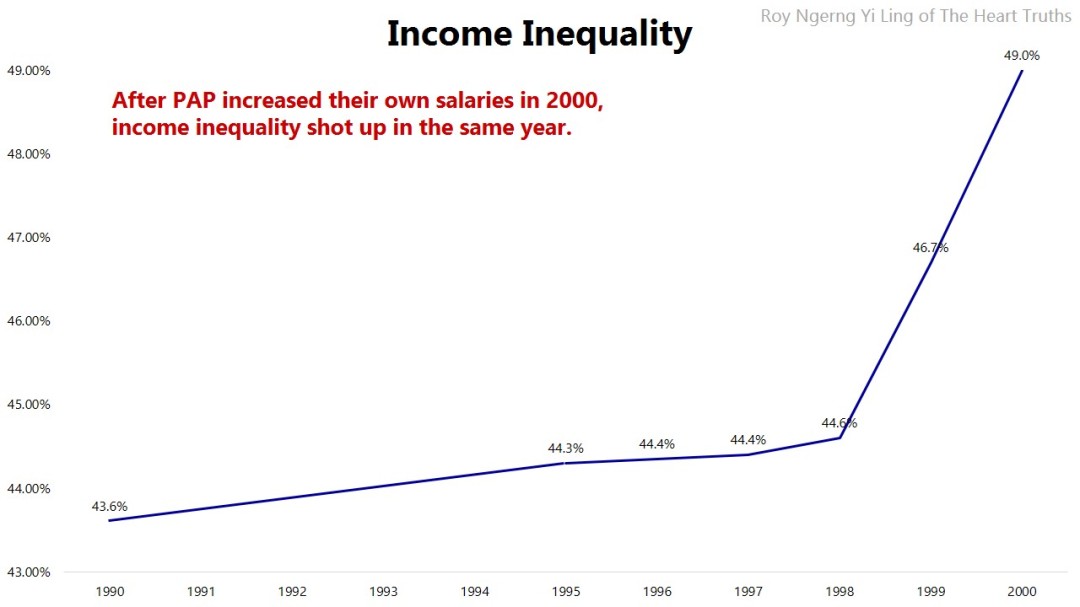 Then the share of income that went to the richest 10% also shot up in the following year. 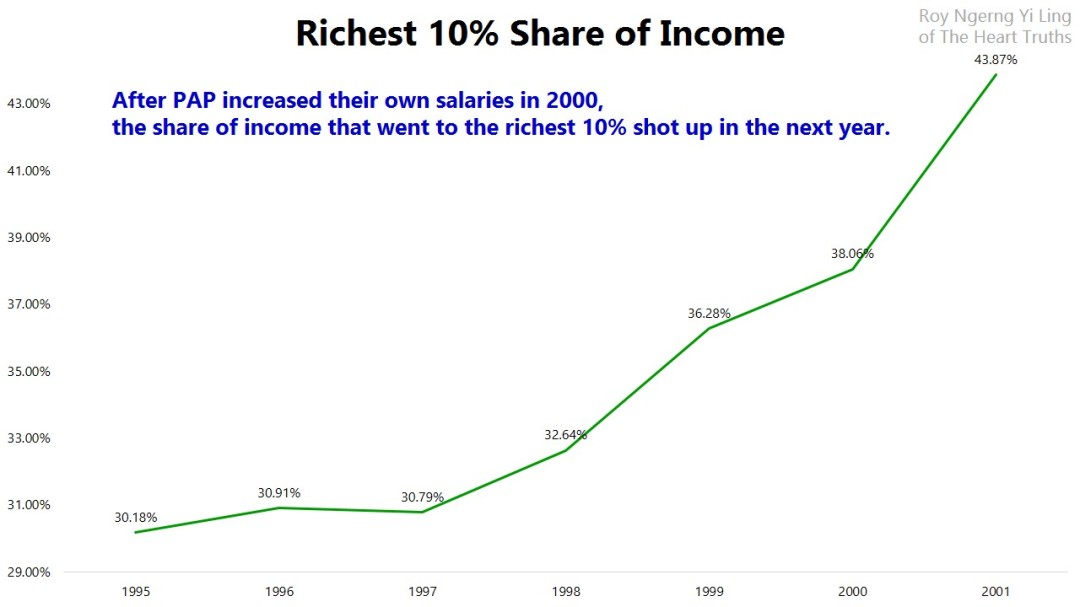 PAP Increased their Own Salaries Again in 2007 Yet in another short 7 years, in 2007, the PAP did not back. They were emboldened to continue to want to increase their own salaries. Mr Chiam See Tong retorted, “Yet, our Prime Minister and other Ministers are still dissatisfied – they want more.“ Mr Chiam also said, “A government should be run entirely for the benefit of the citizens of Singapore. When Ministers are paid exorbitant salaries, then Singaporeans perceive that the Government is not doing everything it can for the people of Singapore but it is more interested in lining the pockets of its Ministers.” As the PAP has done so in the past, they continued to increase their own salaries, at the expense of Singaporeans, as Mr Chiam pointed out once again: Only recently, Members of Parliament have been trying unsuccessfully to get the Minister to increase the Public Assistance from $250 to $300 per month. How will the people react if they found out that the Government is asking for a pay hike of Ministers’ salaries when the Ministers are paid of about $100,000 a month? The people in the bottom 5% are still paid only about $1,000 a month. What are the Ministers going to say to these people when there is such a great disparity of incomes between them and the lowly-paid workers? As far as I am concerned, they have all lost their moral authority, vis-a-vis the low-income workers. The gap of their incomes is too great, in fact, 100 times. The poor worker has to work 100 months to earn the amount of salary a Minister earns in a month. The duty of political leaders is different from that of a leader in a commercial world. In the commercial world, the CEO or the manager has to only think of the bottomline, but the political leader must, at all times, maintain integrity and moral authority to inspire and to rally the people. Once the moral authority is lost, the whole credibility is also lost. Indeed, when the PAP decided to increase their own salaries in 2007, income inequality in Singapore rose to its highest peak in the 2000s. 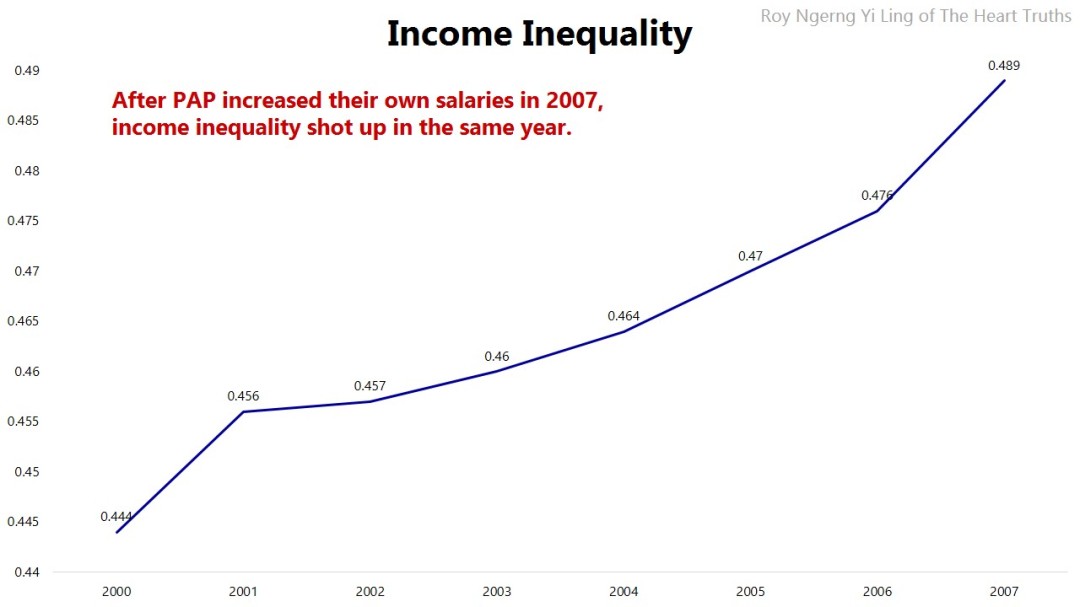 And in the following year, the share of income that went to the rich also shot up to its highest peak. 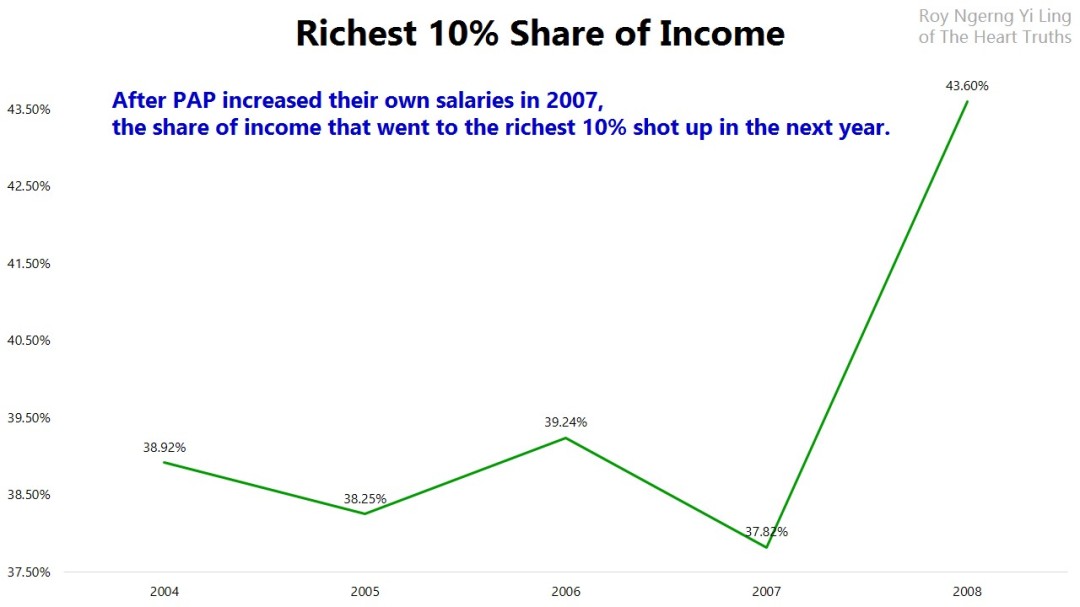 Has the PAP lost its “moral authority”, as Mr Chiam had shot the PAP point-blank? So, you can see, income inequality and the share of income that went to the rich in Singapore climbed in 1984, 1994 and 2007. And in each of these years, you can see how the increase in income inequality in Singapore is intricately linked to how the PAP decide to peg their own salaries to the richest in Singapore and pay themselves the highest salaries in the world. PAP Also Reduced Taxes for Themselves And in fact, you can also see how the PAP also reduced the taxes that they have to pay, so that they can keep more of the money for themselves. In 1961, after self-governance, the top personal income tax rate was increased to 55%. However, “At the end of the 1970s, the average tax rate being paid by the top income group was around 38 per cent (and) by the middle of the 1980s the average rate had fallen below 30 per cent.” In 1987, the top rate was reduced to 33%, then reduced to 28% in 1996, to 22% in 2002 and 20% in 2006. Not only that, the top personal income tax rate only takes effect at a very high level of income in Singapore, or one of the highest levels in the world. 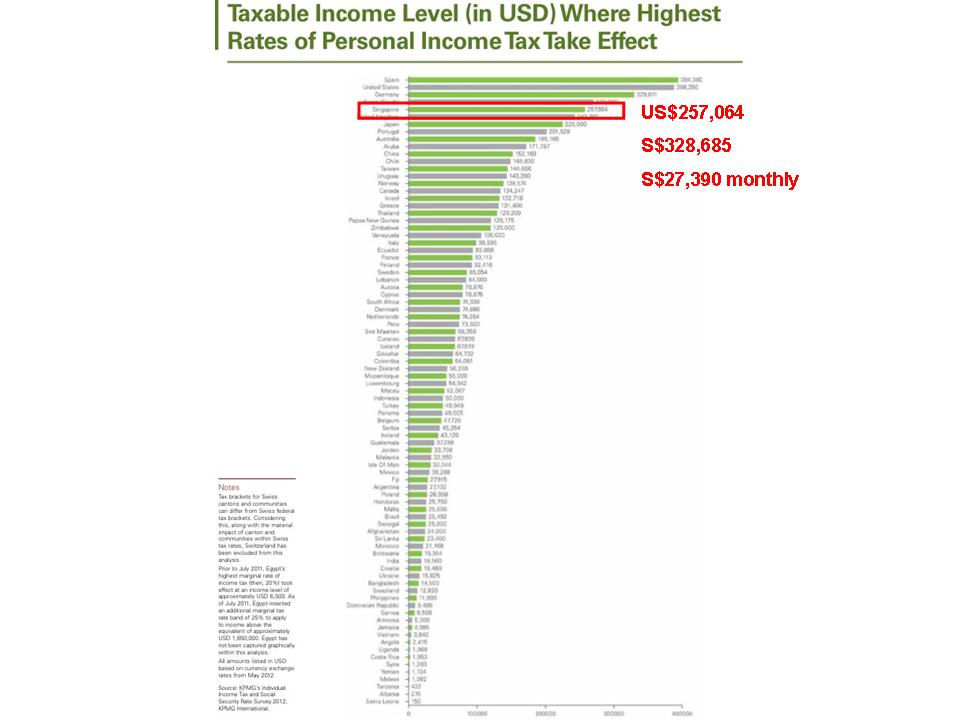 Again, all these coincided with how the income inequality and the share of the income that went to the rich kept shooting up. Indeed, now it makes perfect sense why The Economist had ranked Singapore as 5th on the crony capitalism index, where it is the 5th easiest for the rich to get rich in Singapore if they are politically affiliated to the PAP. 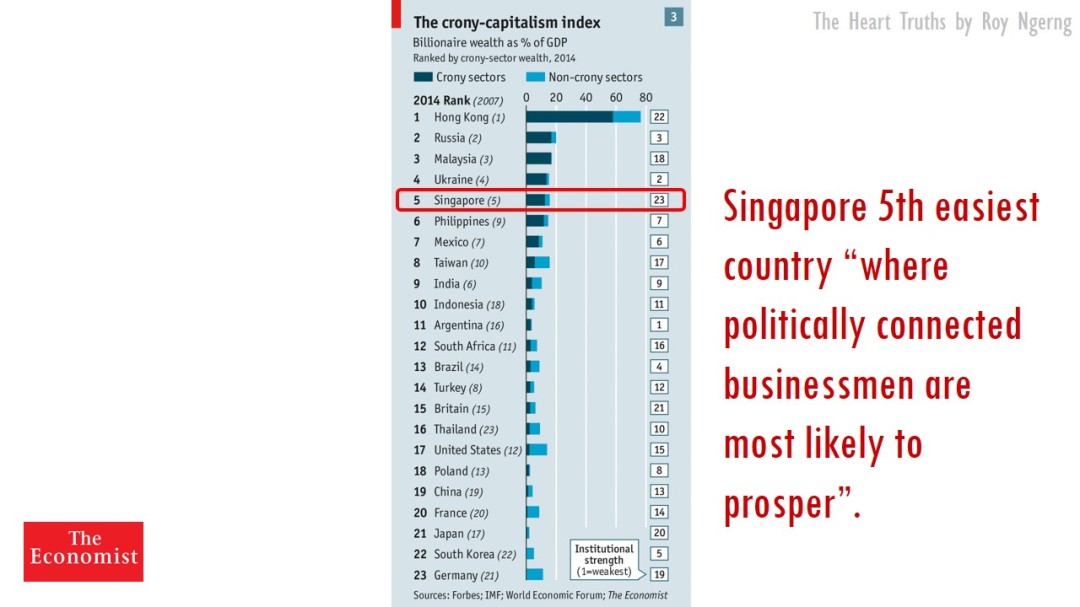 Today, the Singapore prime minister belongs to the richest 0.1% in Singapore while the PAP politicians belong to the richest 5%. 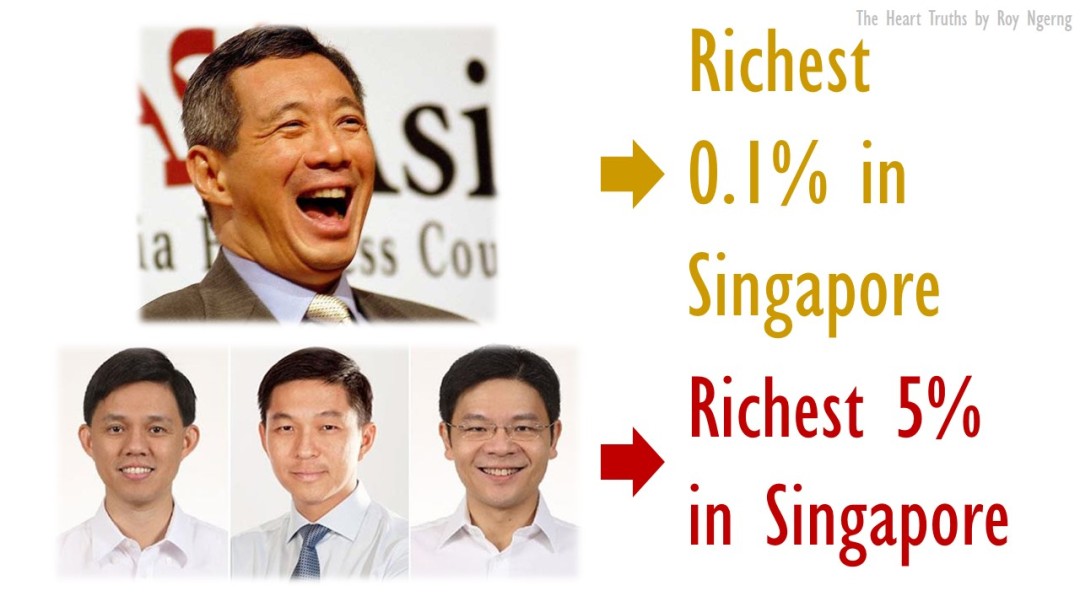 Meanwhile, Singapore has an estimated poverty rate of between 27% to 35% (Professor Mukul Asher). 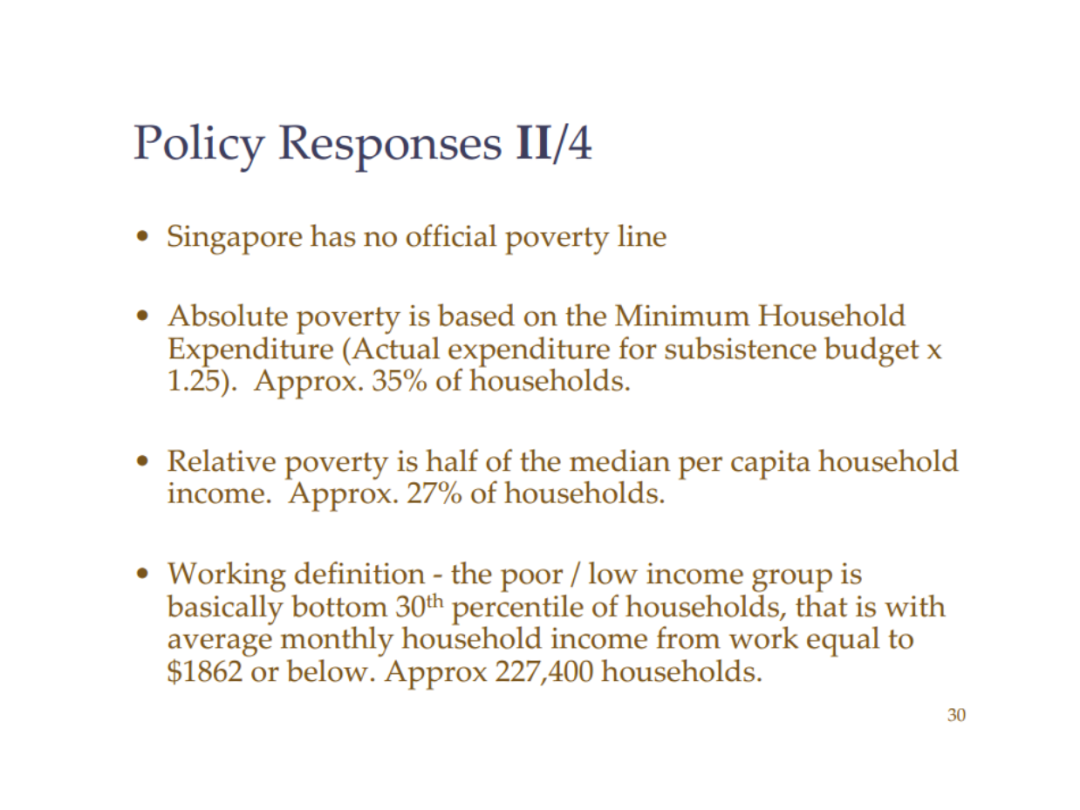 Which means that Singapore has the highest poverty rate among the developed countries and not only that but our poverty rate is even higher than developing countries in the region and on par with some of the poorest countries in the world! 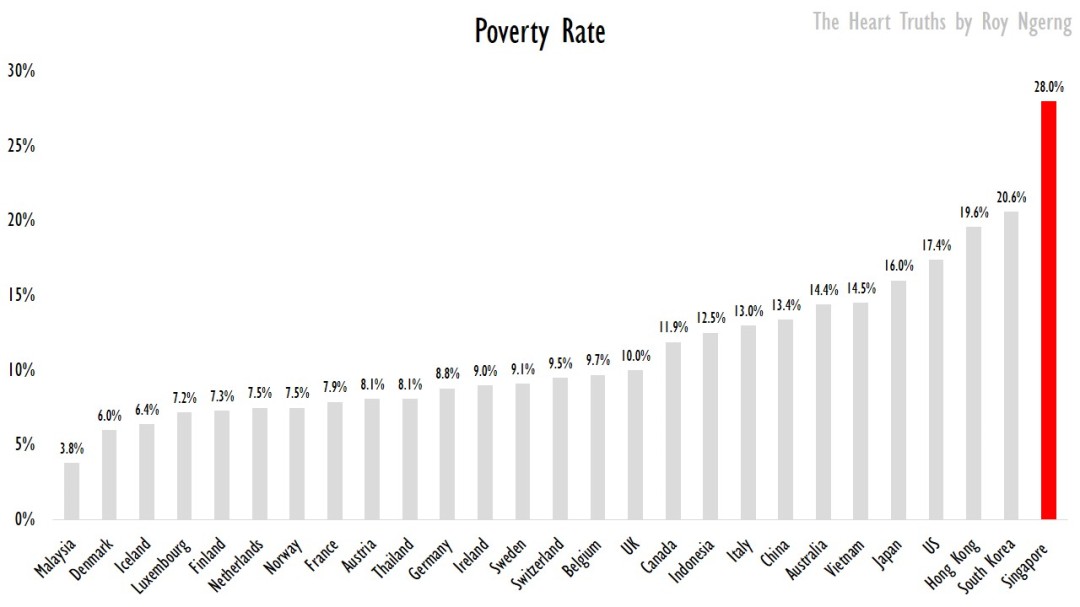 The poor and middle-income in Singapore also have to pay higher tax and CPF than the rich. 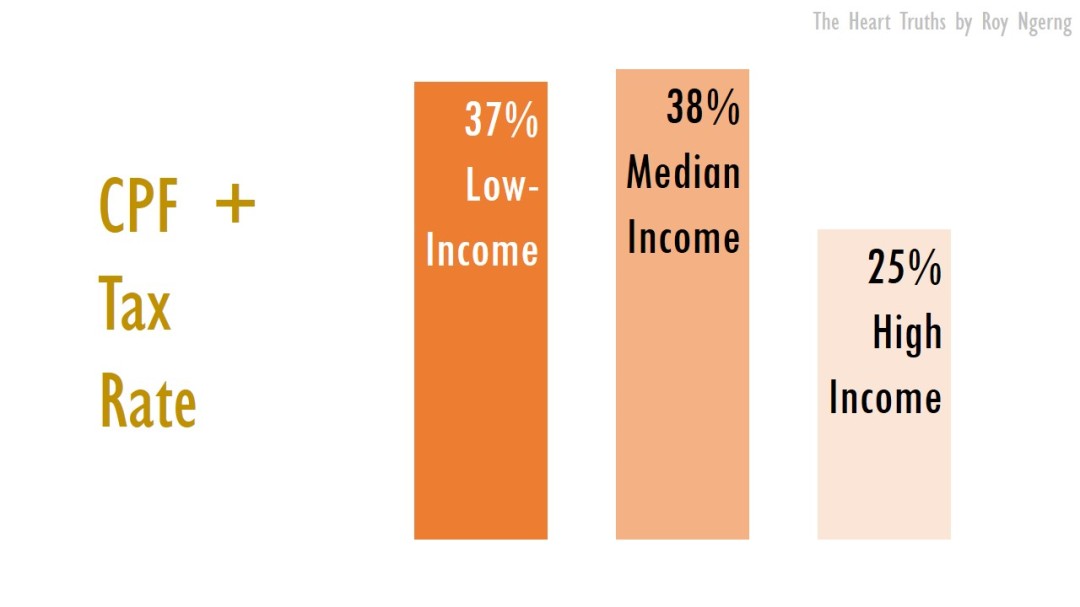 Things have become so bad for Singaporeans that since Singapore’s independence, personal consumption has kept declining.  Purchasing power has grown far slower. 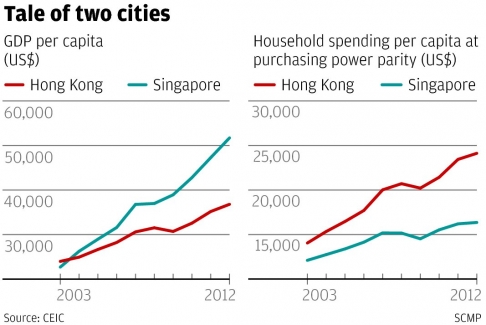 And today, Singaporeans have the lowest purchasing power among the developed countries, and lower than Malaysia and on par with India. 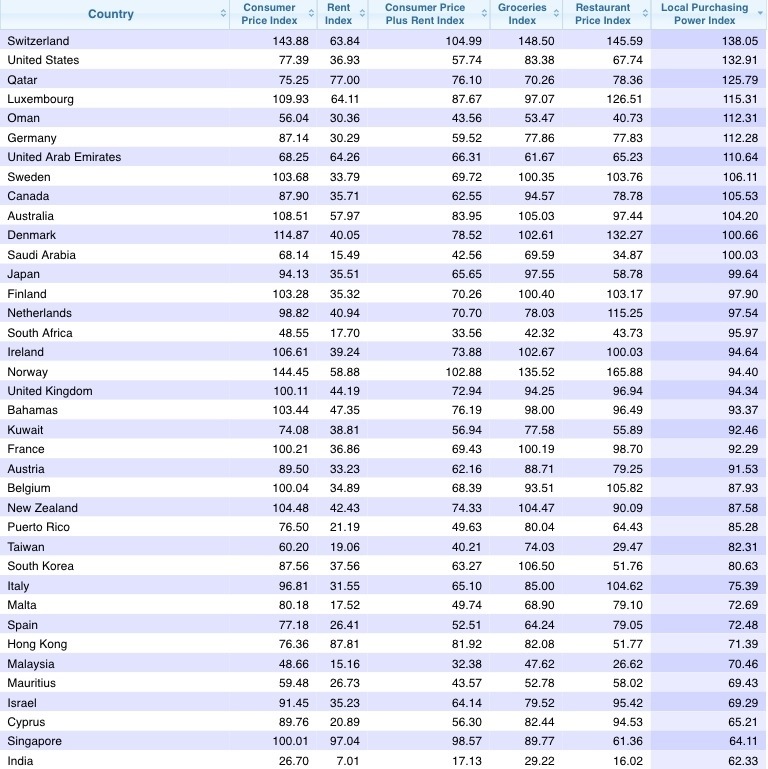 But not only that. Do you know that increasing their own salaries wasn’t PAP’s only way of causing income inequality in Singapore to worsen? As I have written earlier this year and last month, not only in 1984, 1994 and in the 2000s, did the PAP increased their own salaries to boost their own wealth, they also created policies to hurt Singaporeans further.  In 1984, PAP created Medisave and two years later, reduced what they should pay for health subsides from 50% to 30% and made Singaporeans used our Medisave to pay more by ourselves for healthcare. 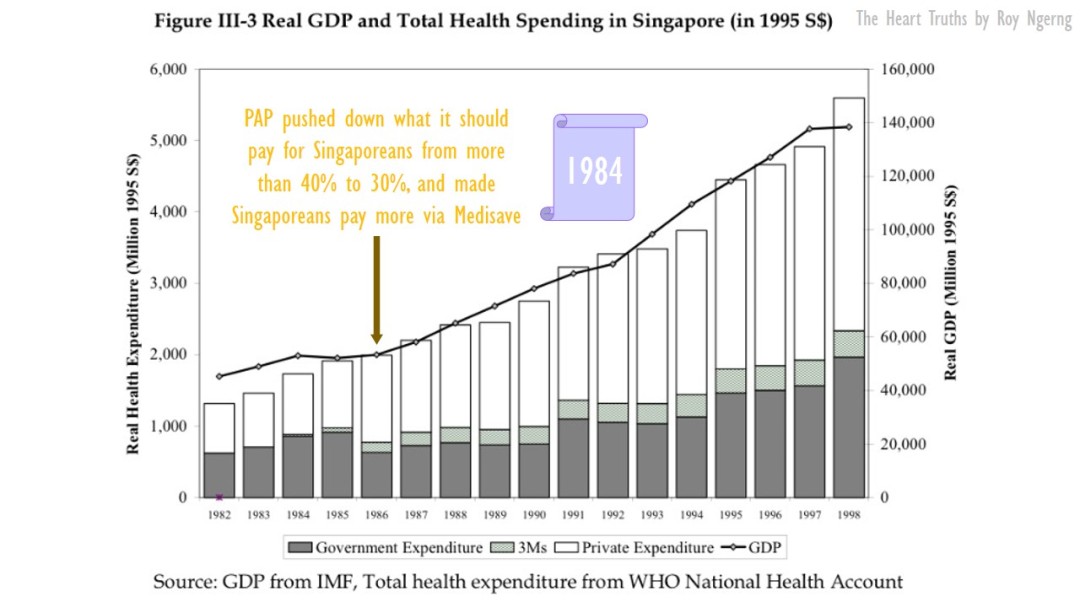 Today, PAP has made Singaporeans pay $66 billion into Medisave but only allowed Singaporeans to withdraw 1.3%, while they keep the rest (for what?). 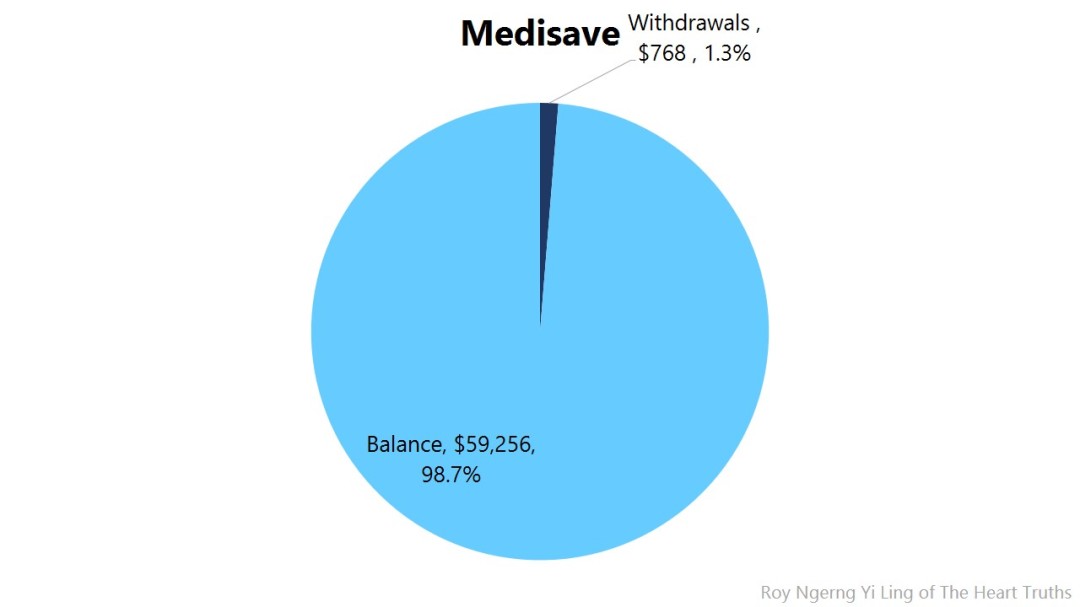 In 1986, PAP said that they would peg our CPF interest rates to market rates to give us higher interest rates. Prior to 1986, Singaporeans were earning 6.5% interest on our CPF. But since the PAP changed it, our CPF interest rates only kept going all the way down to 2.5%. 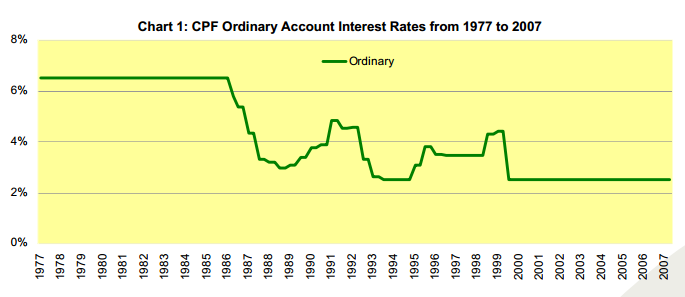 In 1987, PAP introduced the CPF Minimum Sum. For the next nearly 30 years, they kept increasing the CPF Minimum Sum to trap our CPF inside. Today, 90% of Singaporeans cannot meet the CPF Minimum Sum, are unable to withdraw our CPF and are unable to retire.  In 1990, PAP introduced MediShield. Today, we have paid $3.7 billion into MediShield, are able to withdraw only $2.2 billion to use while PAP keeps the rest of the 41% inside for their own surplus. 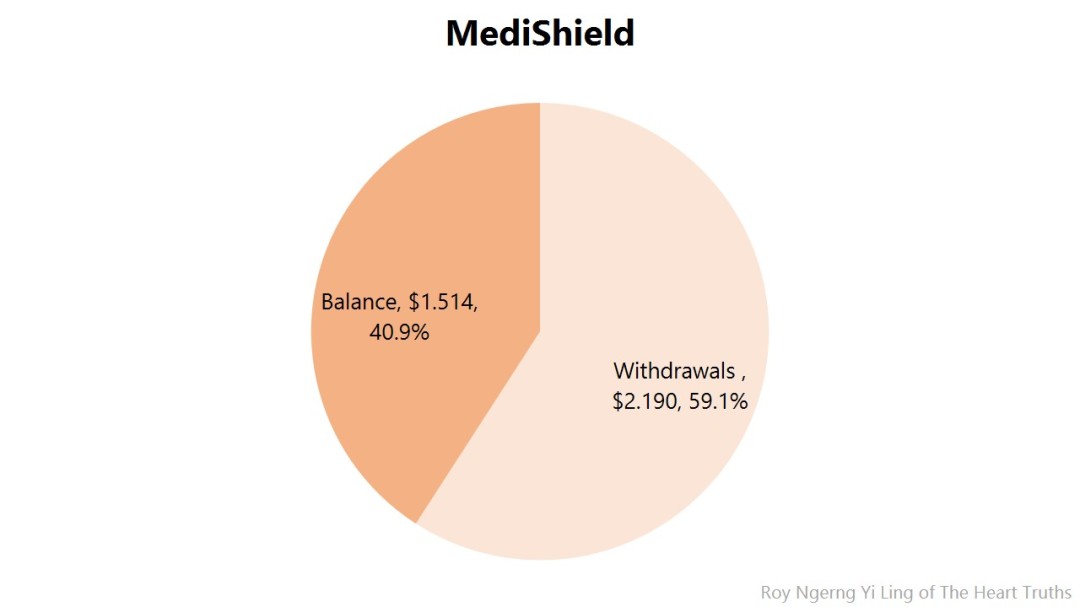 In the 1980s, PAP also decided to include the cost of land into the prices of HDB flats even though Singaporeans do not own the land the HDB flat sits on (nor the flat itself). Because of that, between 1981 and 1988, four-room flat prices rose by an average of only 2.5% per year but between 1988 and 1992, prices increased dramatically by an average of 12% every year! 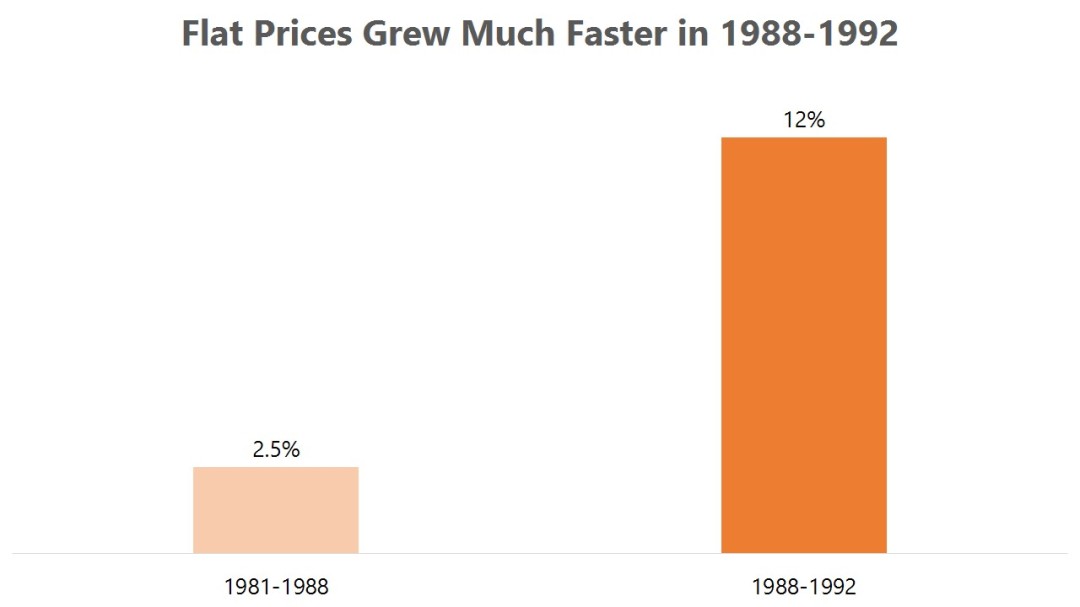 Also, from 2008 to 2013, land costs grew by 18.2% every year, resale flat prices grew by 9.1% but our incomes only grew by 5.3%! 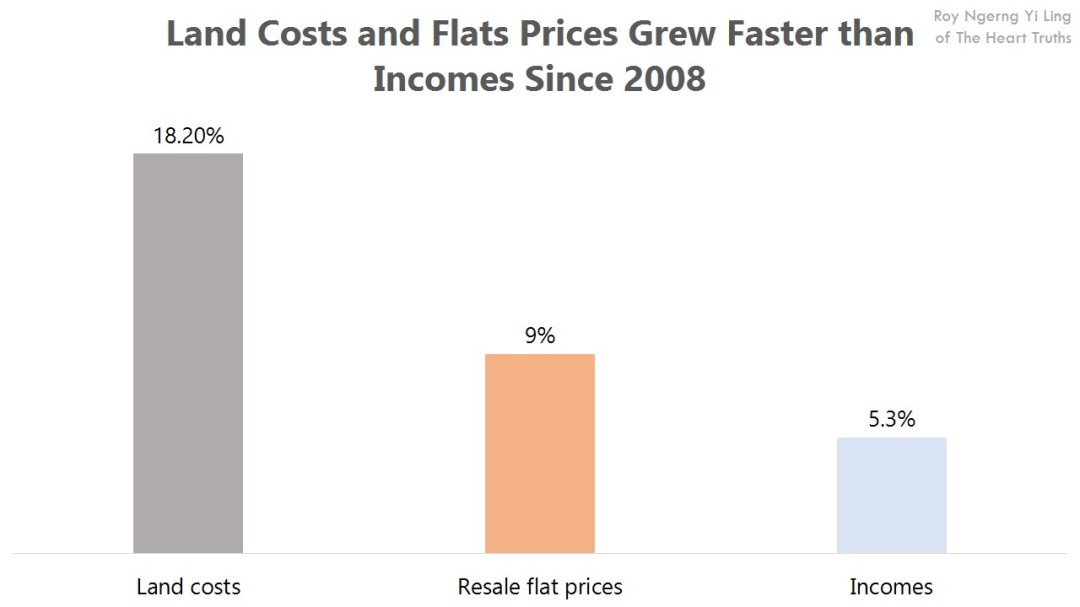 Today, of the flat prices, Singaporeans have to lose 60% to paying for land which does not belong to us. 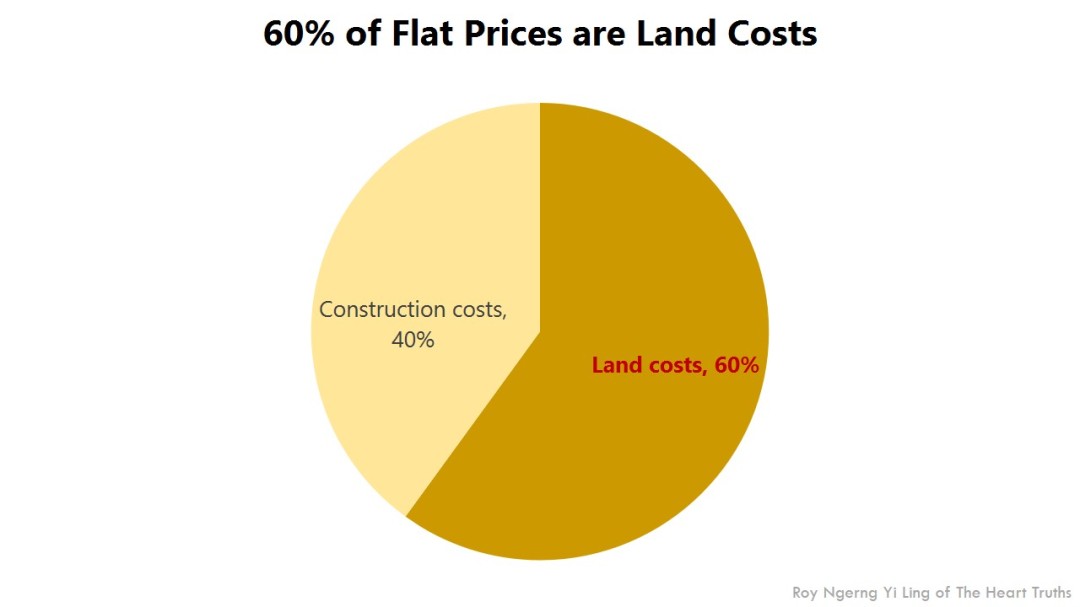  Then in 1994, we see PAP once again increased their own salaries. In 1994, they also changed the housing policies to allow CPF to buy resale flats, knowing that this would drive up prices of HDB flats beyond control, and reduced Singaporeans’ purchasing power further. And who gets to reap the profit? 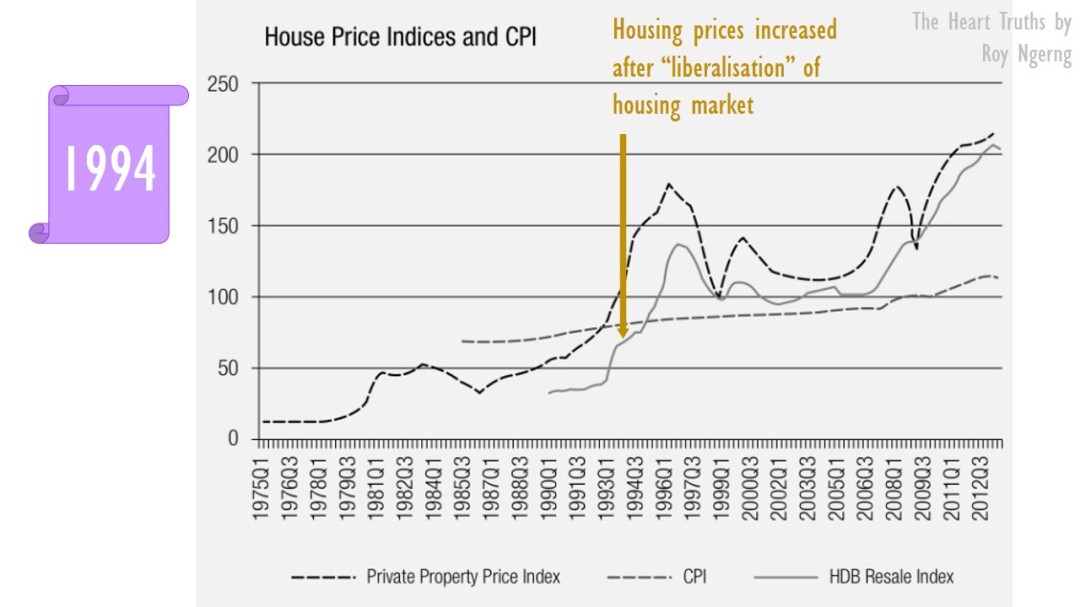 In 1995, PAP spiked up the CPF Minimum Sum to trap more of Singaporeans’ CPF inside. 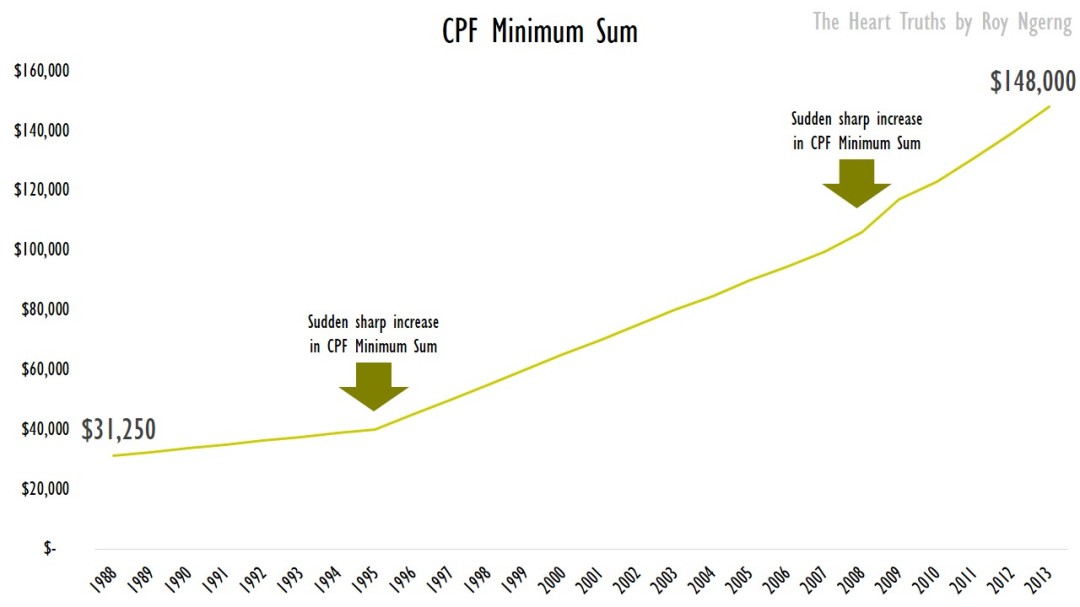 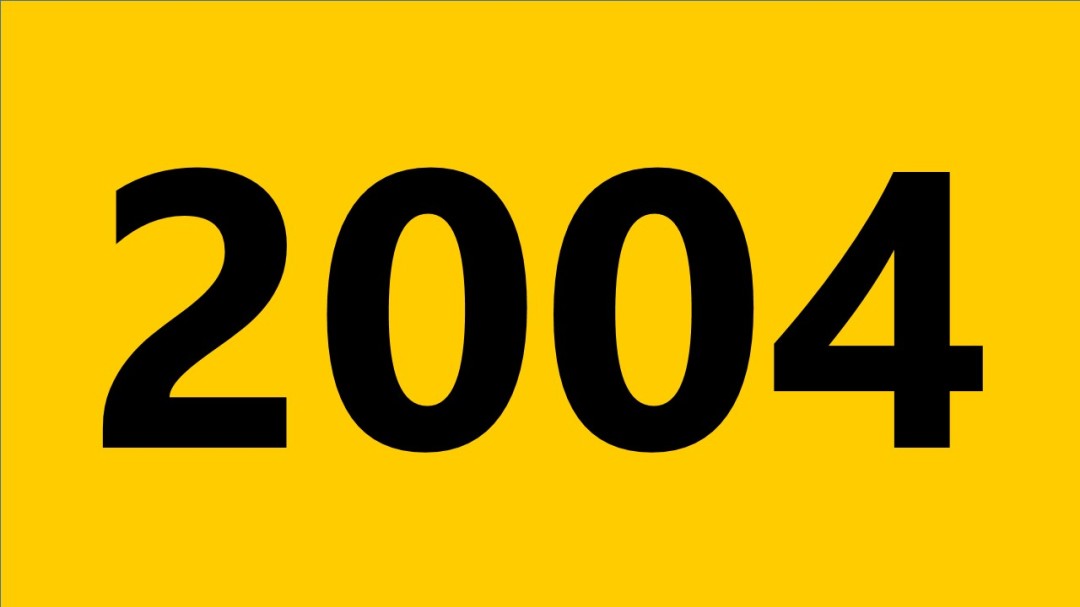 In 2004, PAP opened the floodgates to cheap substitute labour which further depressed the wages of workers in Singapore. 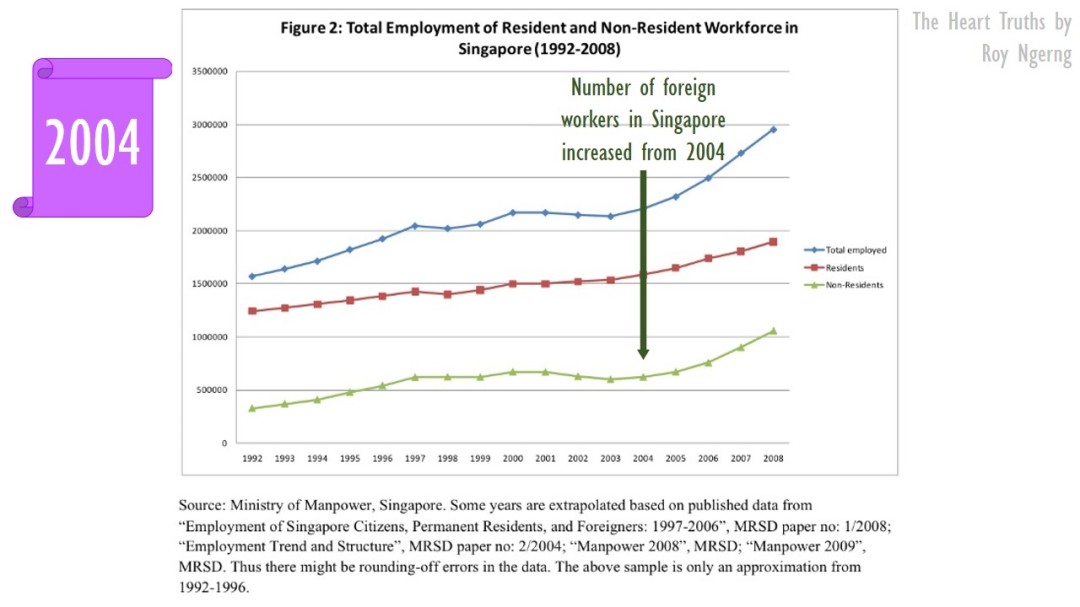 In 2004, PAP also created the EntrePass scheme to invite high-net worth individuals to set up businesses and the Global Investor Programme to invite them to become permanent residents, which further fuelled the income inequality. 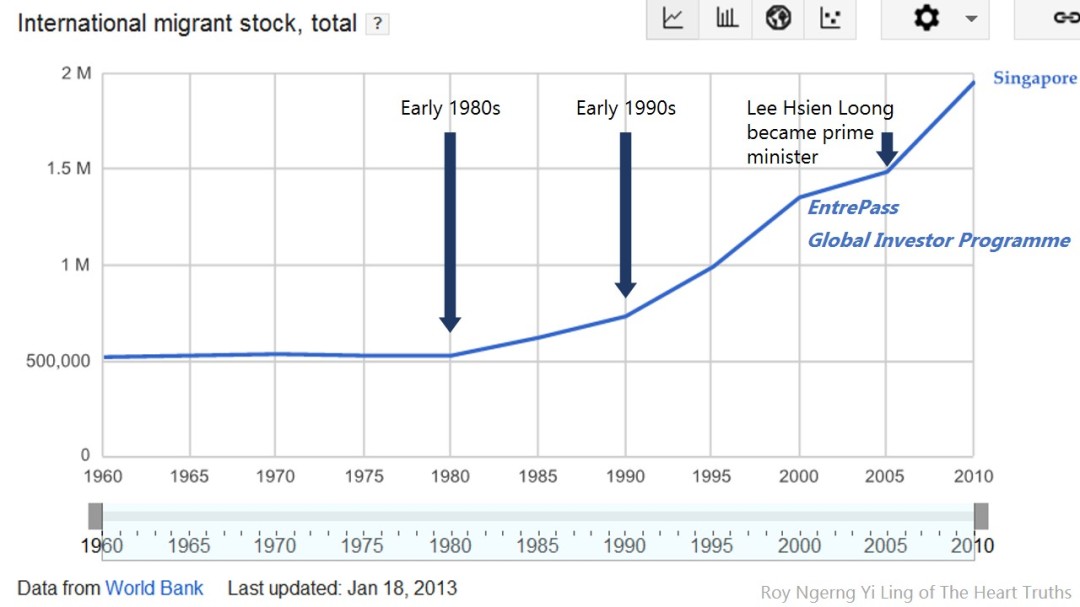 In 2004, profits in companies owned by PAP, via Temasek Holdings also shot through the roof. You can see the example in Singtel below. 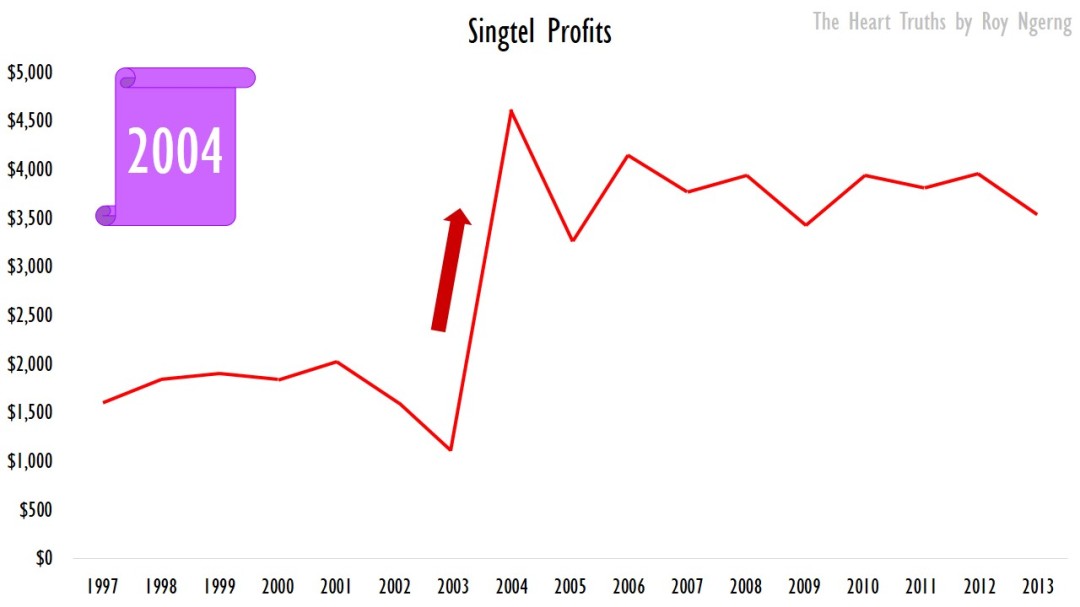 By 2007, because of the wage depression and when PAP increased their own salaries, the proportion of Singaporeans who were earning less than $1,000 ballooned even though Singapore was becoming richer and more Singaporeans should be earning higher wages, but this did not come. 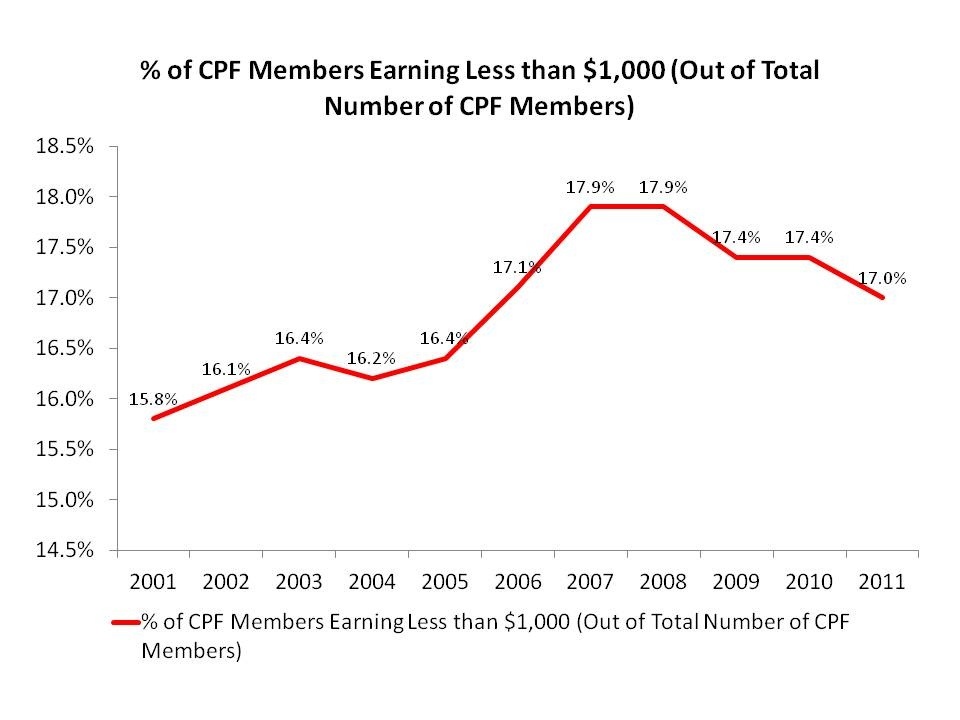 Yet, Lee Hsien Loong wanted to invite more billionaires into Singapore, even whilst knowing that income inequality would get worse in Singapore.  Today, the income inequality has worsened so badly that this has disastrous effects for Singapore. Today, the gap between the richest 20% and the poorest 20% in Singapore is the widest among the developed countries. 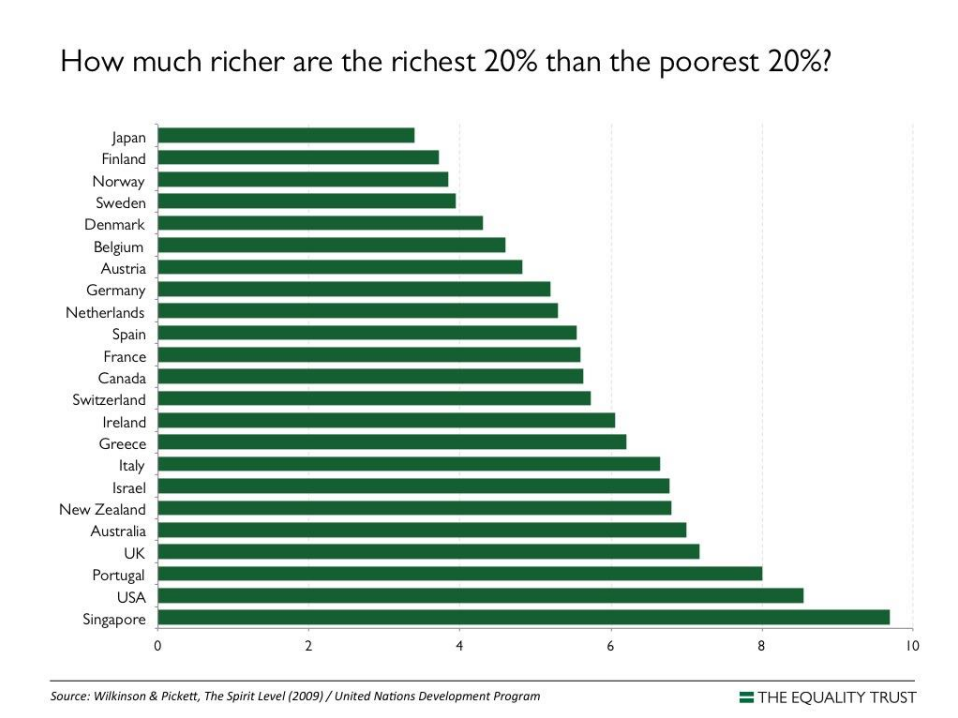 In fact, you can see that the gap between the richest 1% and the rest of the 90% of Singaporeans have kept growing wider and wider since Singapore’s independence, and especially exacerbated from the mid-1980s onwards, when PAP chased out the PAP Old Guards and changed course. 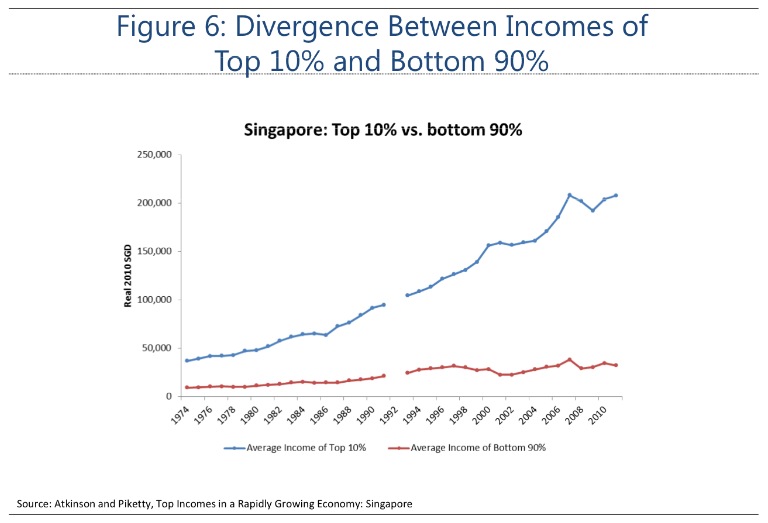 Indeed, after the United States, the share of income that has gone to the richest 1% in Singapore has risen the fastest in Singapore since the 1980s, as compared to the other developed countries. 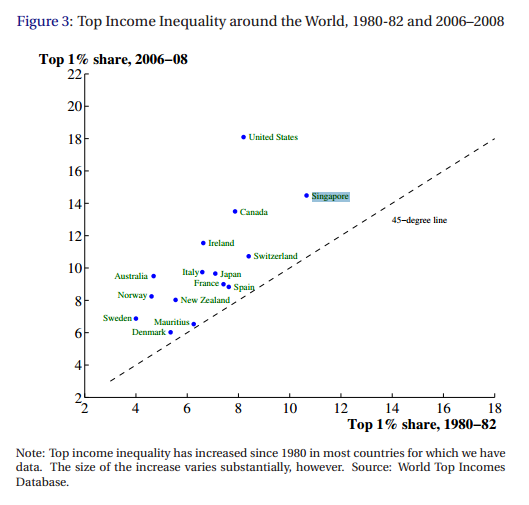 Because Singapore has the highest income inequality among the developed countries, we also have the highest prisoner rate, after the United States. 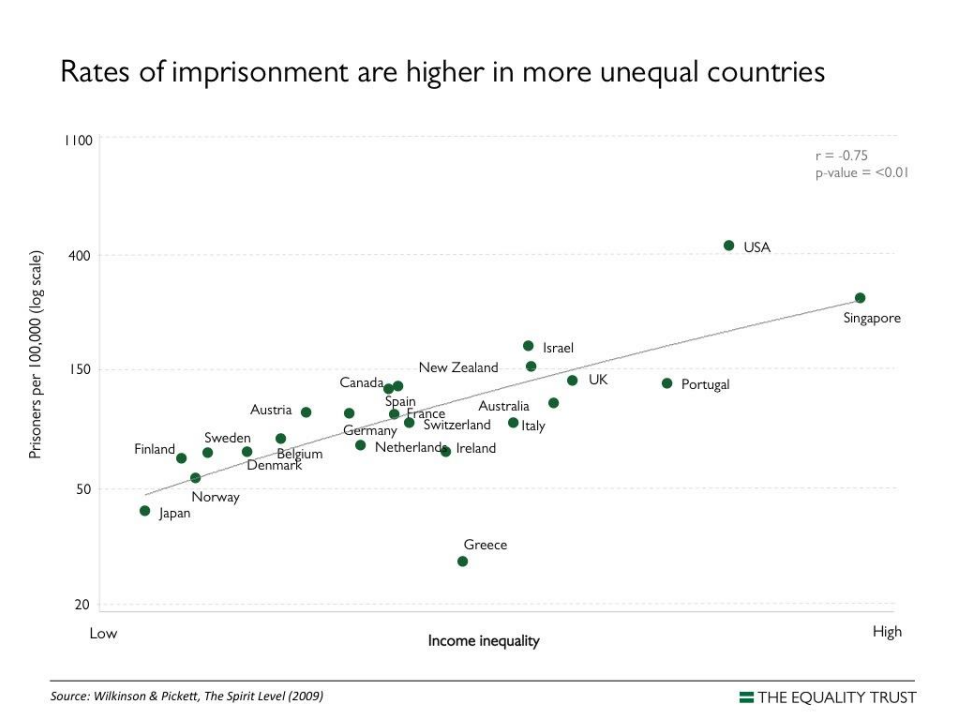 We also have one of the lowest social mobility. 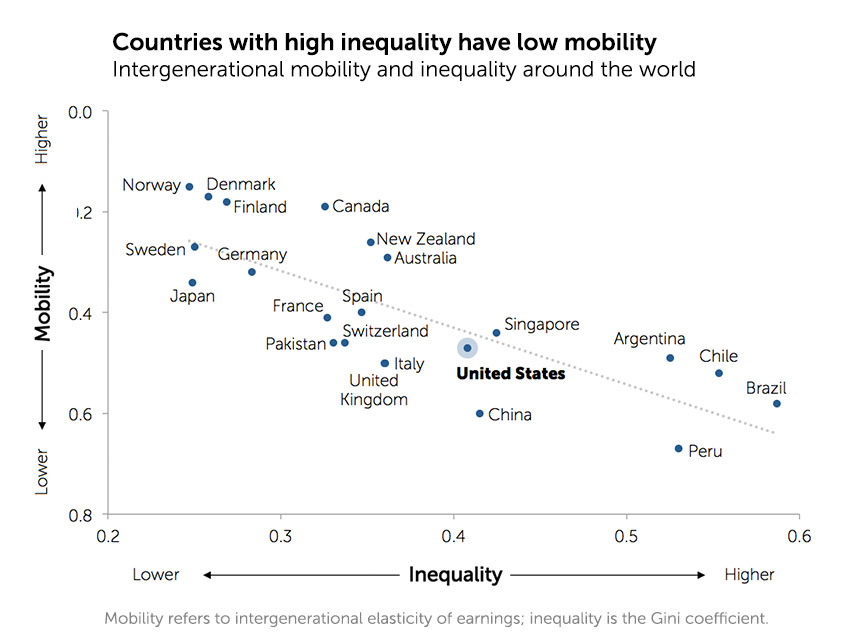 Singaporeans have also become more likely to self-enhance or to think we are better than someone else, among the developed countries. 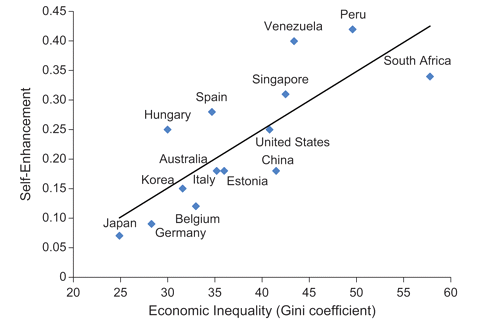 And the level of trust has grown so bad that we have the lowest levels of trust. 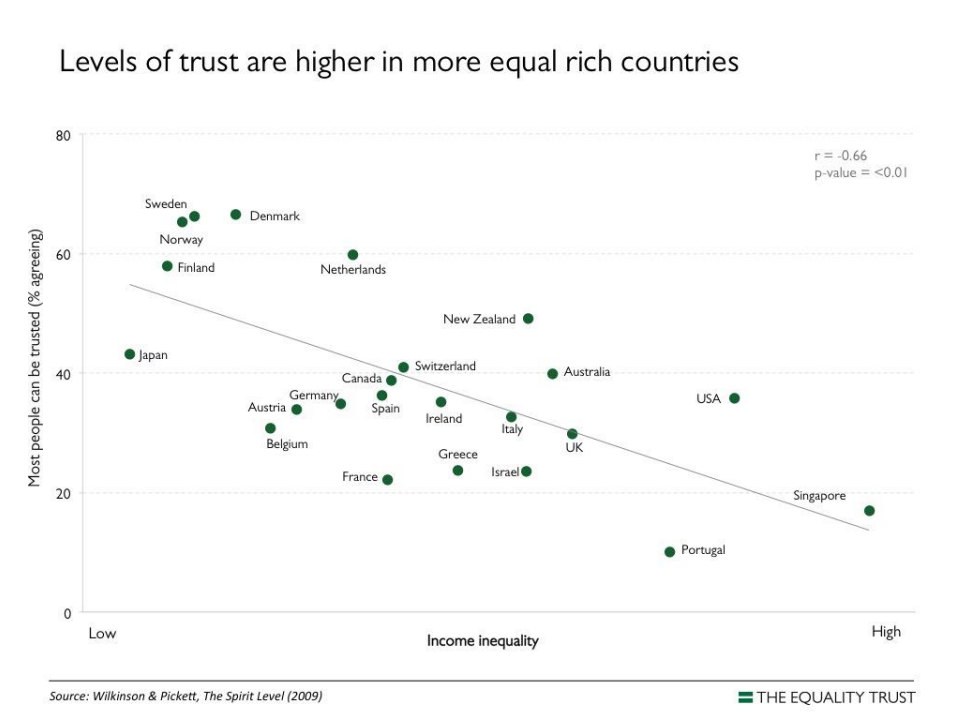 And are the second least likely people in the world to help a stranger. 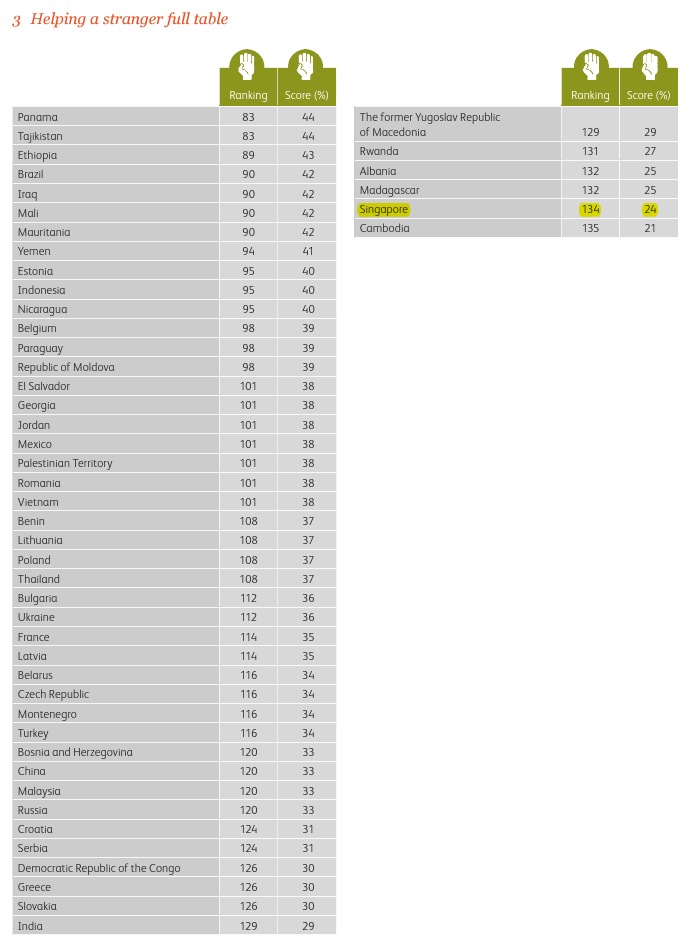 Singaporeans have also become the most unhappy and most emotionless people in the world. 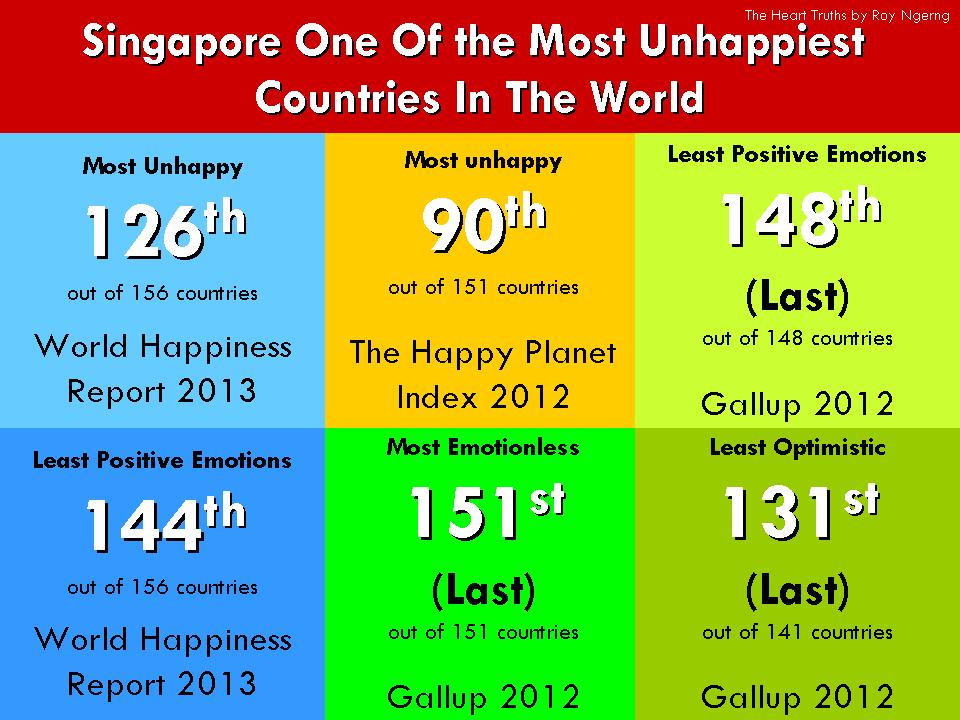 Today, PAP’s policies have driven Singapore to become the most expensive country in the world to live in, while they also earn the highest salaries in the world. 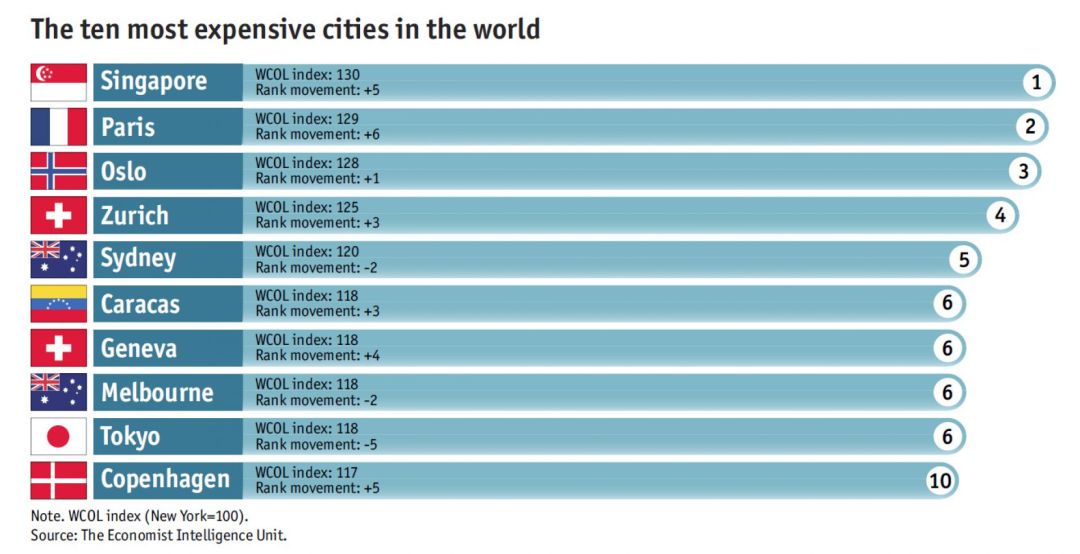 While Singaporeans have to earn the lowest wages among the highest-income countries. 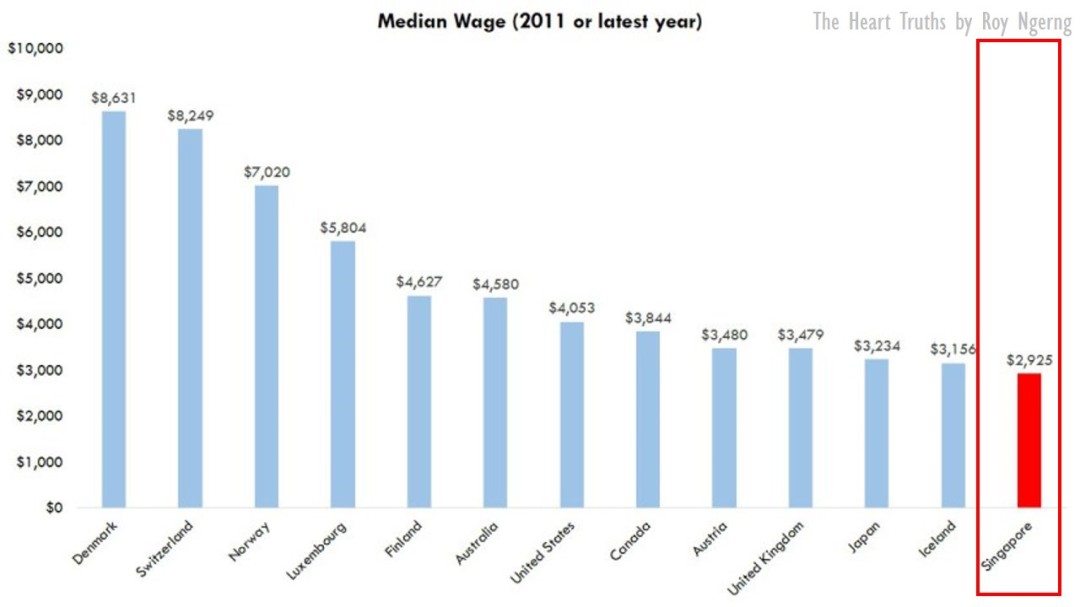 And have the lowest wage share among the developed countries. 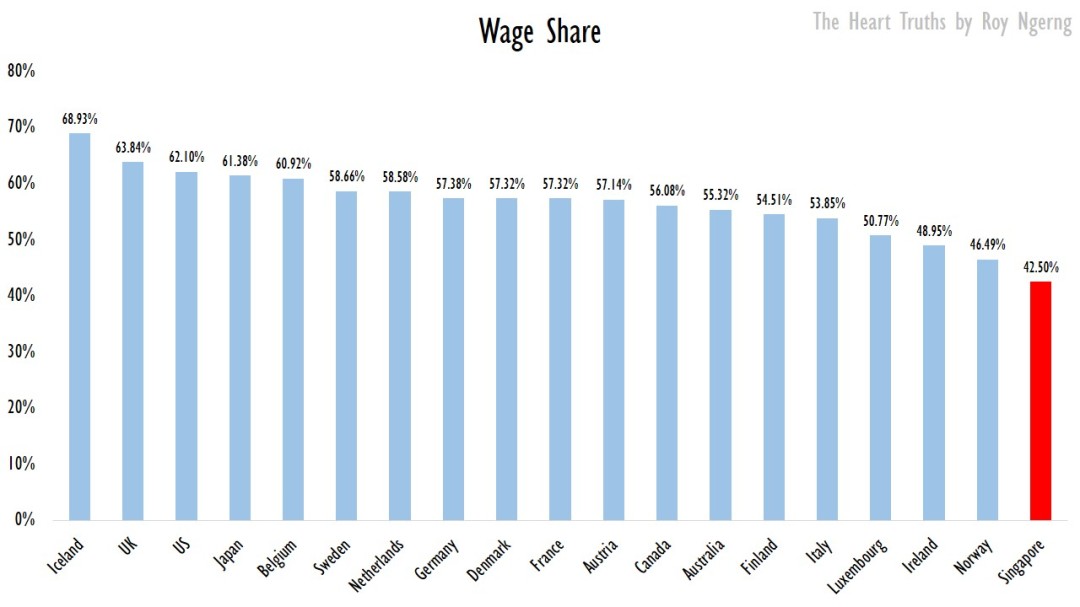 Meanwhile, PAP is able to grow GIC and Temasek Holdings to become the 8th and 10th richest sovereign wealth funds in the world, using our CPF. 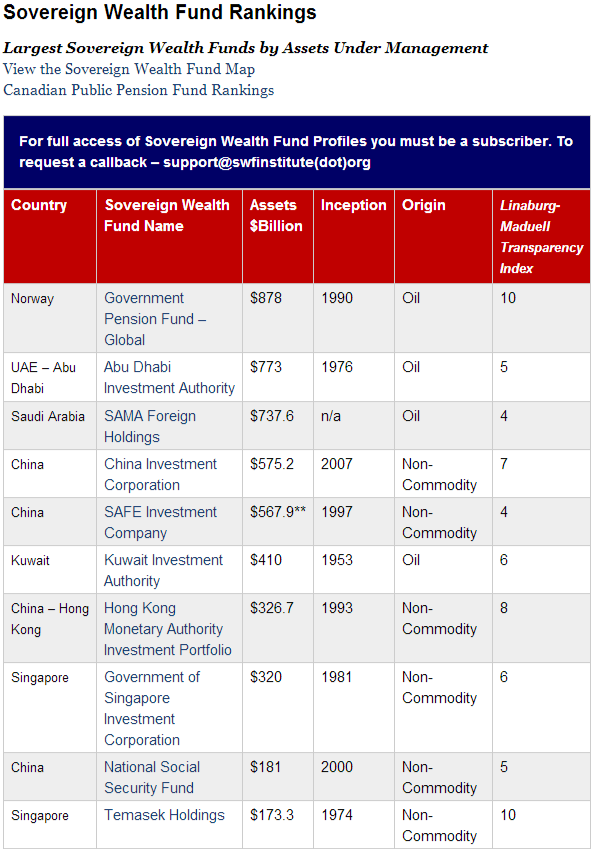 While Singaporeans have one of the least adequate retirement funds in the world. 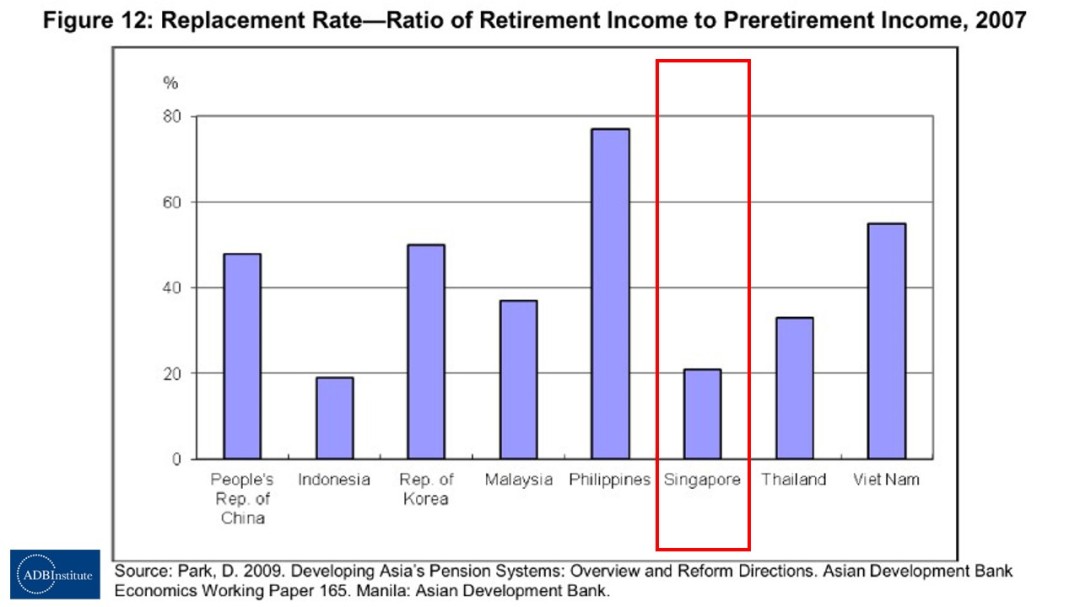  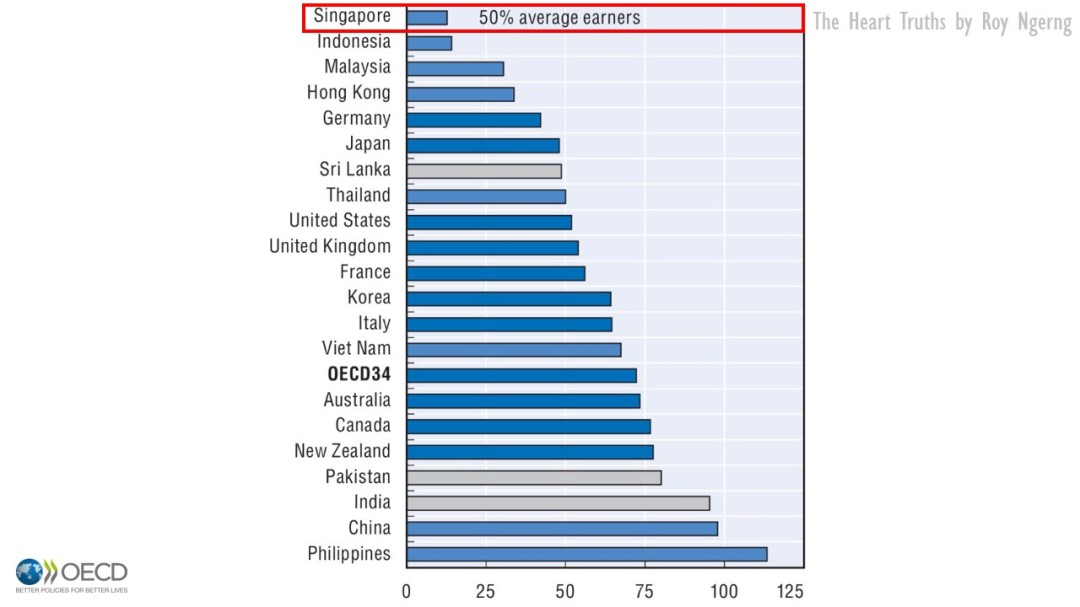 Yet, the government would spend the least on social protection for Singaporeans, among the developed countries, and one of the lowest in the world. 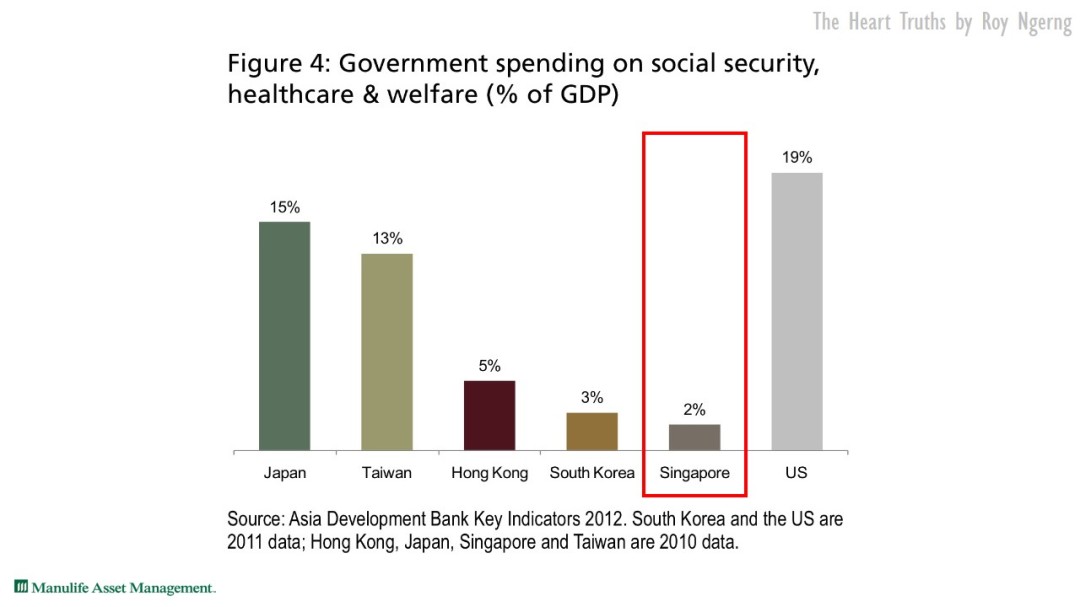 Do you see what is wrong in Singapore? The elitist system in Singapore has robbed Singaporeans not only of our wealth but also of our lives, our pride and our dignity. And this is not intentional. The PAP created this, all the way since way back since at least from 1984. PAP started paying themselves extravagant salaries in 1984 and kept increasing their own salaries in 1994, 2000 and 2007, and then their own cronies, networks and the rich affiliated to them. They also created policies to further repress the lives of Singaporeans from 1984, 1994 and 2004. 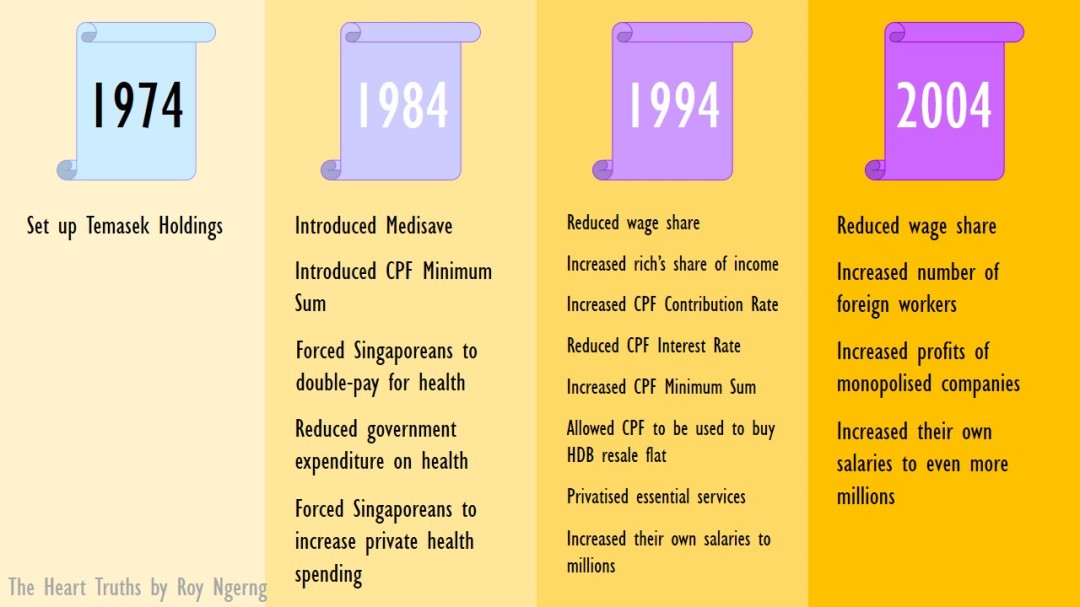 All these are not intended. It was not by accident that income inequality in Singapore kept rising in Singapore. It was not by chance that the rich (affiliated to the PAP) got richer and richer and helped themselves to the money of Singaporeans. After PAP eradicated the PAP Old Guards in 1984, the people left embarked on a policy to cut down on Singaporeans and further victimise our livelihoods. Today, Singaporeans live marginalised lives because of a PAP which no longer took care for Singaporeans but allowed Singaporeans to languish, while they reap what they sow from our hard labour. Yet, swayed by the PAP’s propaganda in the mainstream media, we had believed in the PAP and have been hoping for the past 30 years that the PAP would one day turn around and start to actually help Singaporeans. PAP exterminated the leftists in Singapore in 1965, and then eradicated the PAP Old Guards in 1984 who at least had the heart to serve. They killed off the people who wanted a more equal society in Singapore and implanted their own cronies into government. It is no wonder Mr Chiam lamented the impossibility of getting good people into government, without having to go on the guise of high salaries. Good people was never part of the plan. I am sorry, Singaporeans. For the past 30 years, you have trusted the wrong party to run your government. I am not sure if you are too shock by this yet to respond or to wake up and want to do something about it yet. But if we do not want or dare to do something about this, then Singapore will go the way of other civilisations that have gone before us. Singapore Will Collapse if the Inequality Continues Tearing Our Country Apart In a study funded by NASA, it was shown that “the process of rise-and-collapse is actually a recurrent cycle found throughout history“. One key factor that “can lead to collapse (is) … “the economic stratification of society into Elites [rich] and Masses (or “Commoners”) [poor]” These social phenomena have played “a central role in the character or in the process of the collapse,” in all such cases over “the last five thousand years.” The “accumulated surplus is not evenly distributed throughout society, but rather has been controlled by an elite. The mass of the population, while producing the wealth, is only allocated a small portion of it by elites, usually at or just above subsistence levels,” as is happening in Singapore right now, where the poorest 30% in Singapore do not earn enough to survive and have to spend 105% to 151% of their incomes while for the middle-income, two-thirds can earn only enough to buy what they need but not anything else more and can barely survive. 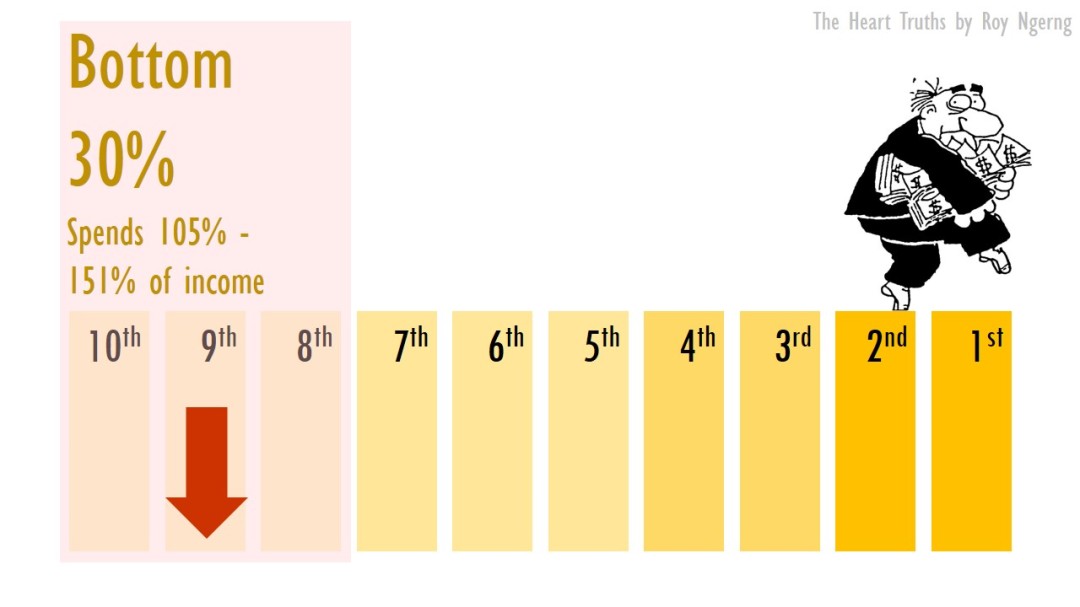 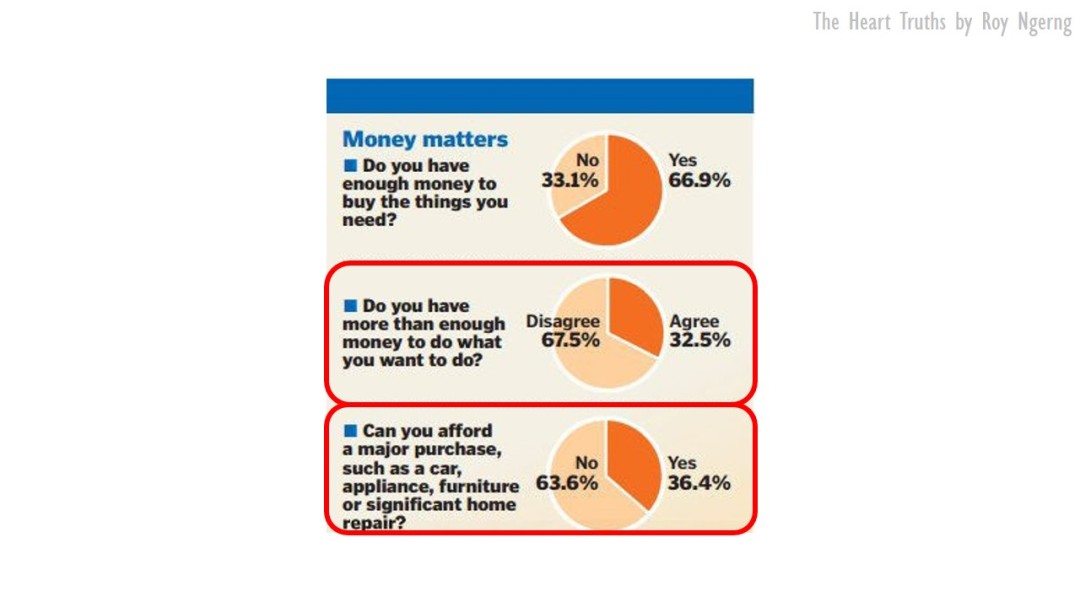 Thus “the Elites (would) eventually consume too much, resulting in a famine among Commoners that eventually causes the collapse of society.” And thus “under conditions “closely reflecting the reality of the world today… we find that collapse is difficult to avoid.” Finally, the study concluded that, “Elite wealth monopolies mean that they are buffered from the most “detrimental effects of the environmental collapse until much later than the Commoners”, allowing them to “continue ‘business as usual’ despite the impending catastrophe.” This would explain why the PAP and their affiliates and cronies would continue to be oblivious to the damage that they are causing to Singapore because they are so high up in their high horses and ivory towers that they are sheltered from the realities of the large majority of Singaporeans. When we say the PAP is out of touch, it is truly because they are unable to empathise with the rest of Singaporeans, perhaps not because they do not want to, but due to a lack of ability by virtue of being part of the self-made elite, that would allow their downfall and Singapore’s demise to be similar to that of the “Roman and Mayan cases”. The study explained that “the worst-case scenarios are by no means inevitable, … (if) appropriate policy and structural changes (are implemented) … (to) pave the way toward a more stable civilisation,… (by) reduc(ing) economic inequality so as to ensure fairer distribution of resources”. So, the solution is clear, based on a careful study of the past 5,000 years of human history. The impending collapse in Singapore can be avoided, but only if there is a fairer distribution of wealth and resources. However, it is clear the PAP is unwilling. For a government which would fudge the income inequality statistics to pretend that income inequality is going down and to claim that Singaporeans are better off, in spite of further and further hardship, the PAP is in a denial mode akin to how the elites in other fallen societies have enshrouded themselves within, before their societies collapsed. Today, Singapore has become like the 1950s all over again where Singapore was still under colonial rule, where income inequality and poverty was at staggering levels, and which created much social unrest and uprising. Will Singapore go the way of fore where the lives of Singaporeans have become so incredibly squeezed that we would break out of the mould to fight, reclaim our lives and bring about a more equal society for Singapore? Or will we continue to fear for our own lives, to stay confined to our existence and hope that by some stroke of luck, Singapore will be fine in spite of the wealth of evidence that suggests otherwise. Perhaps at the end of the day, if Singapore goes back from First World to the Third World or perhaps into oblivion as Temasek in the 14th century had, the PAP and elites might not be the only ones to blame, but Singaporeans ourselves for not having risen up and spoken up, when we should have, from not only protecting ourselves but protecting the very country our lives have been rooted on. And when the times does come, be it in the next few years or the next 10 or 20, it was not that Singaporeans and the PAP (and their cronies) alike were never warned, but that we were, but we remained in denial, fear and a blissful ignorance that by the time our country slides beyond hope, the only person we might curse and swear should be ourselves. Your choice now. What would you do? Come down to the #ReturnOurCPF 4 protest on 27 September 2014 at 4pm at Hong Lim Park. You can join the Facebook event page here. On 27 September 2014, join us at the Hong Lim Park at 4pm at the #ReturnOurCPF 4 protest. The PAP cannot take our CPF and money to use and come out with a cock-and-bull story about how they do not know how they are using our money. When Singaporeans are not able to retire today, when our wages are depressed and more and more Singaporeans are becoming unemployed and are unable to save, then the PAP has failed Singaporeans and has become a liability to our country. Join us at the next protest as we speak up against the low retirement funds and wages, and the high cost of living in Singapore. You can join the Facebook event page here. Also, my first court case will be held on 18 September 2014, at 10.00am. It will be a full-day hearing. 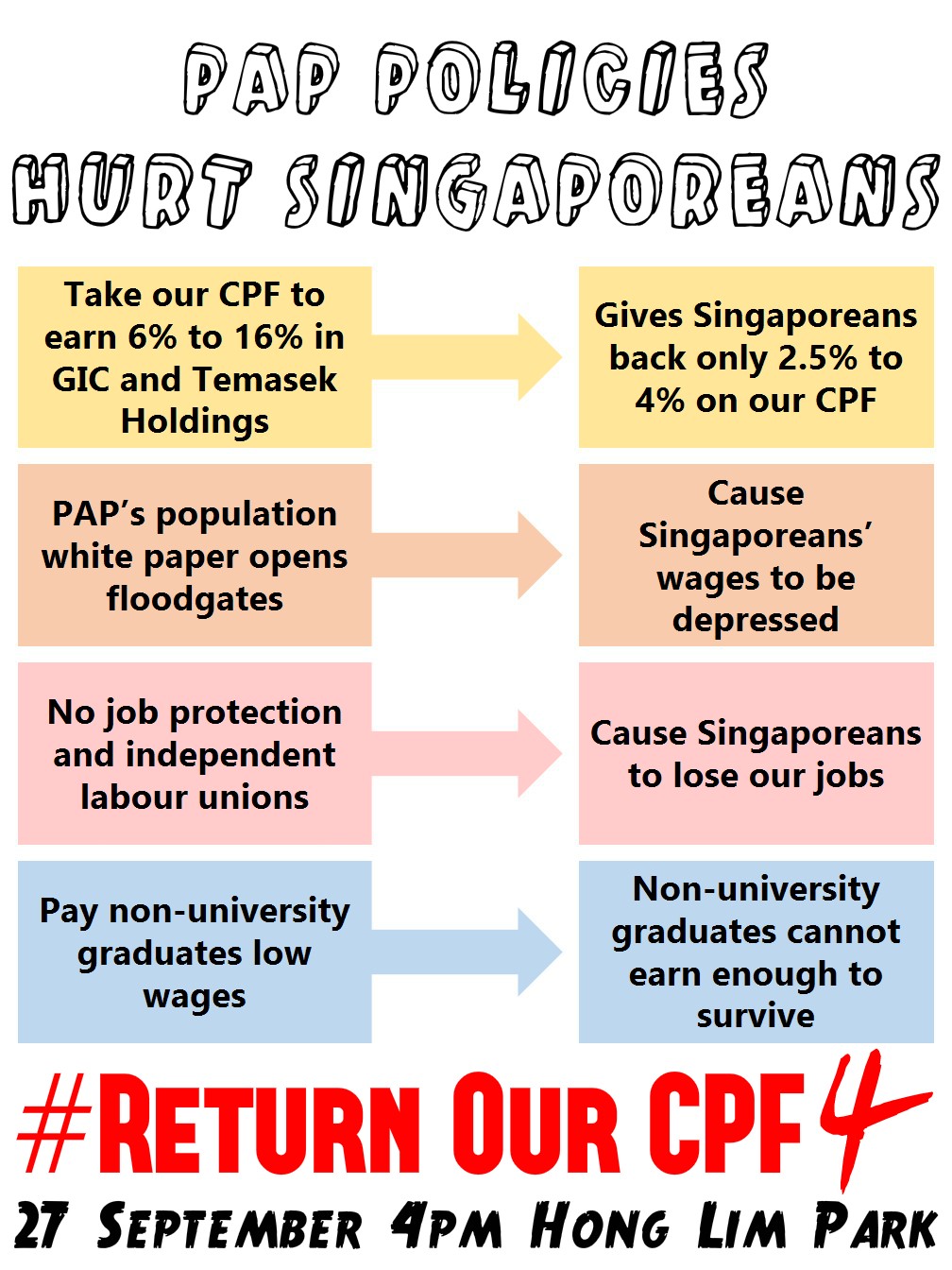 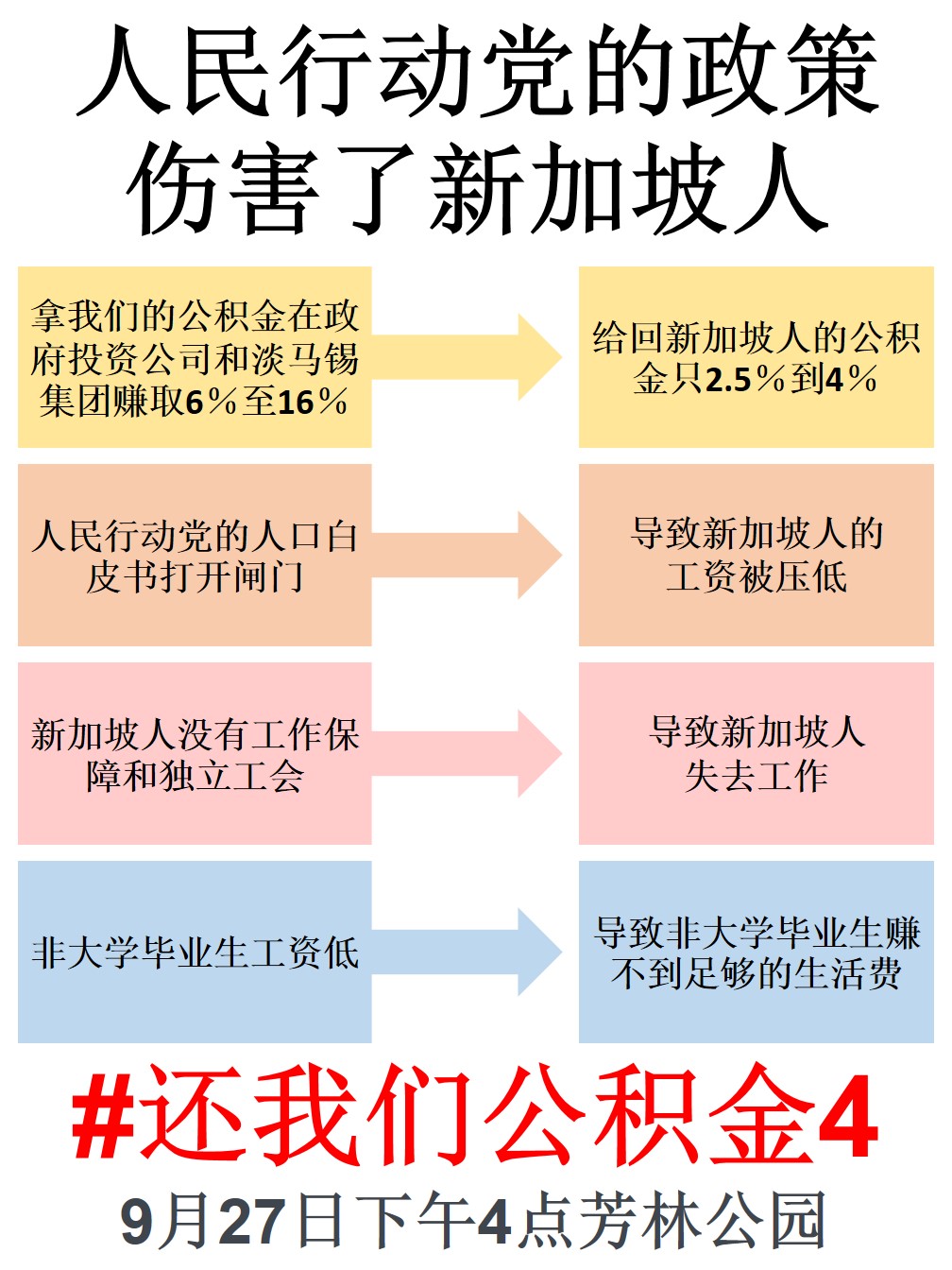 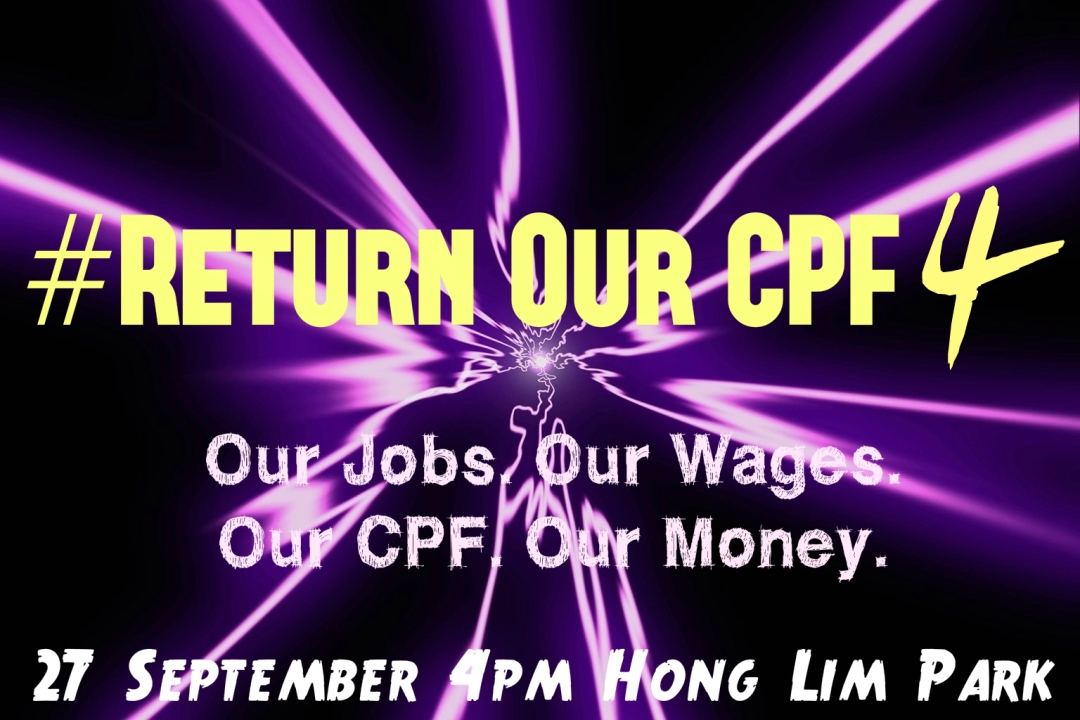 Roy Ngerng *The writer blogs at http://thehearttruths.com Click here to view the whole thread at www.sammyboy.com. |
| Advert Space Available |
 |
| Bookmarks |
|
|